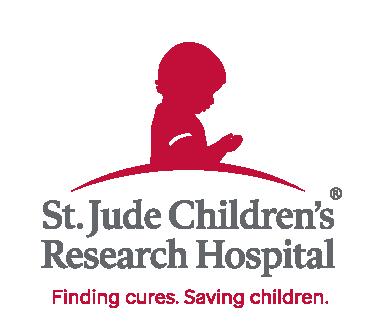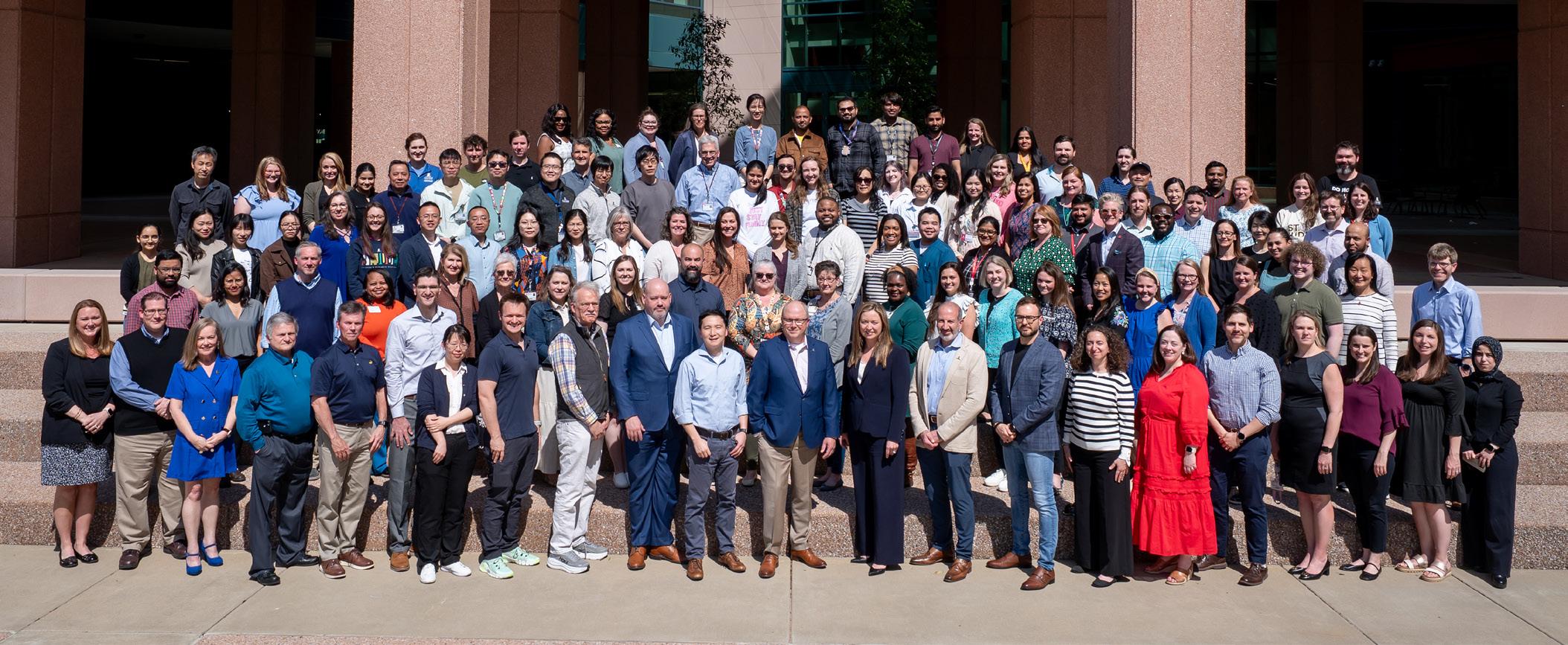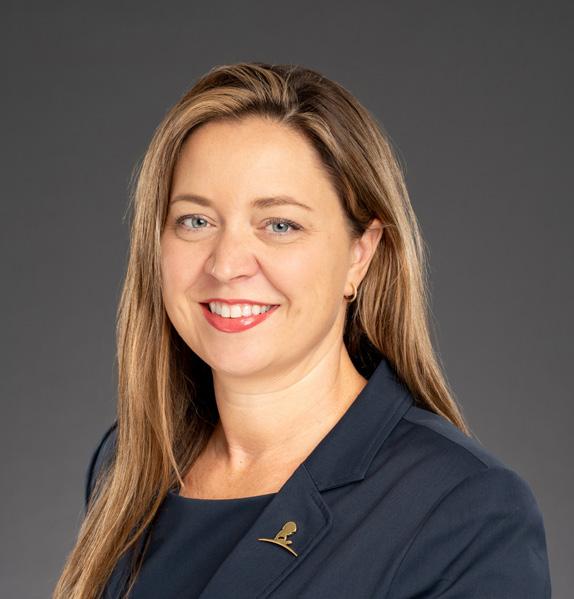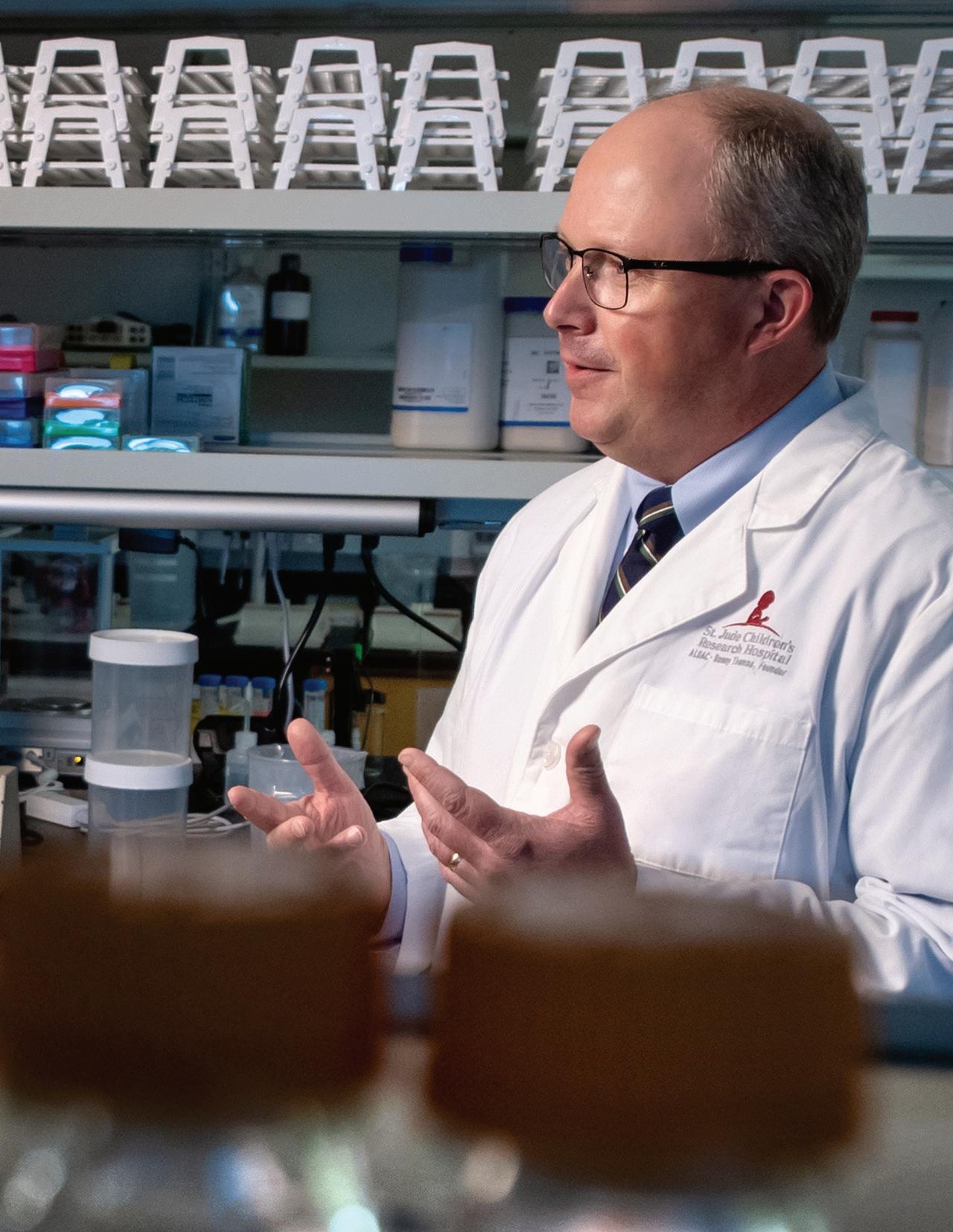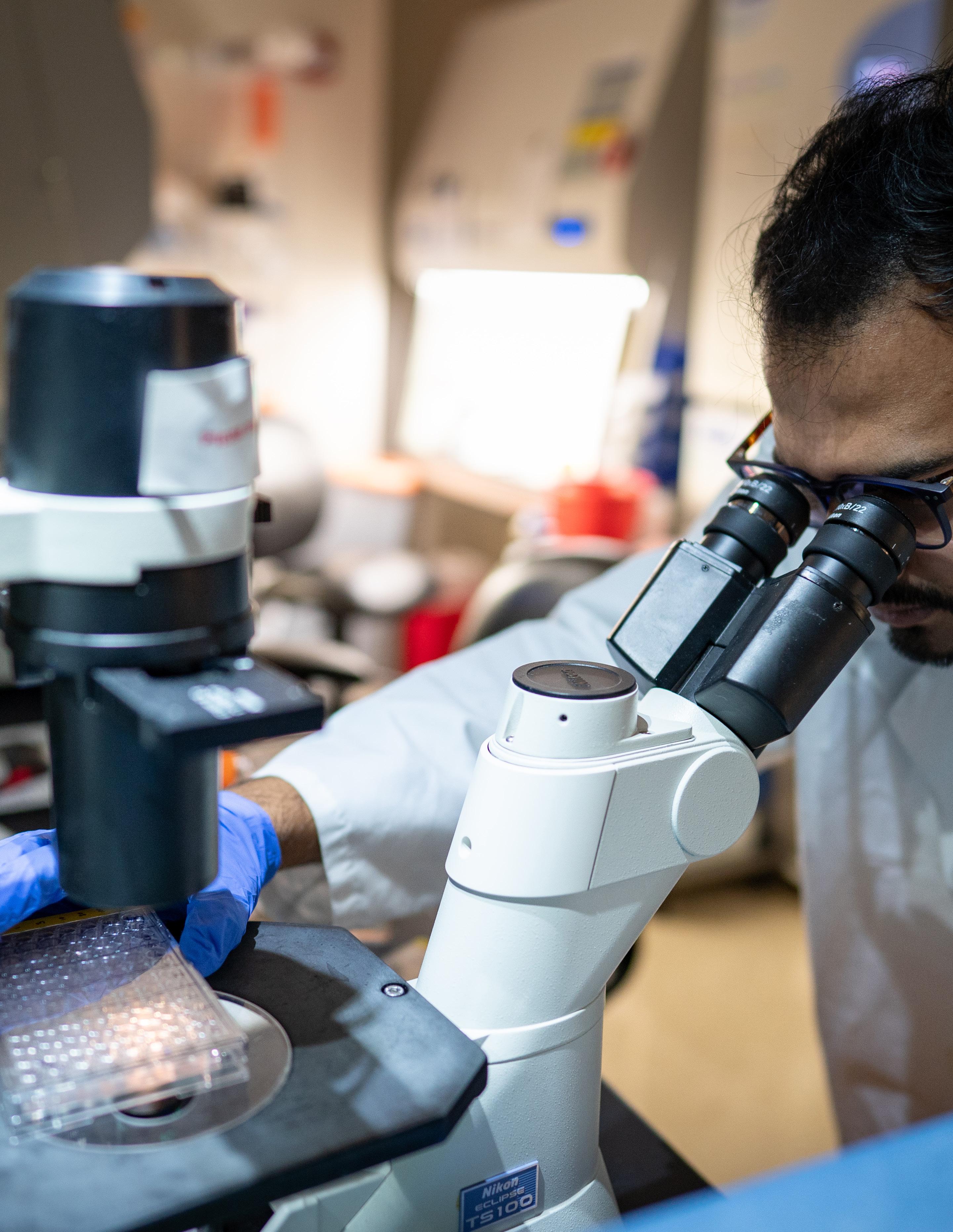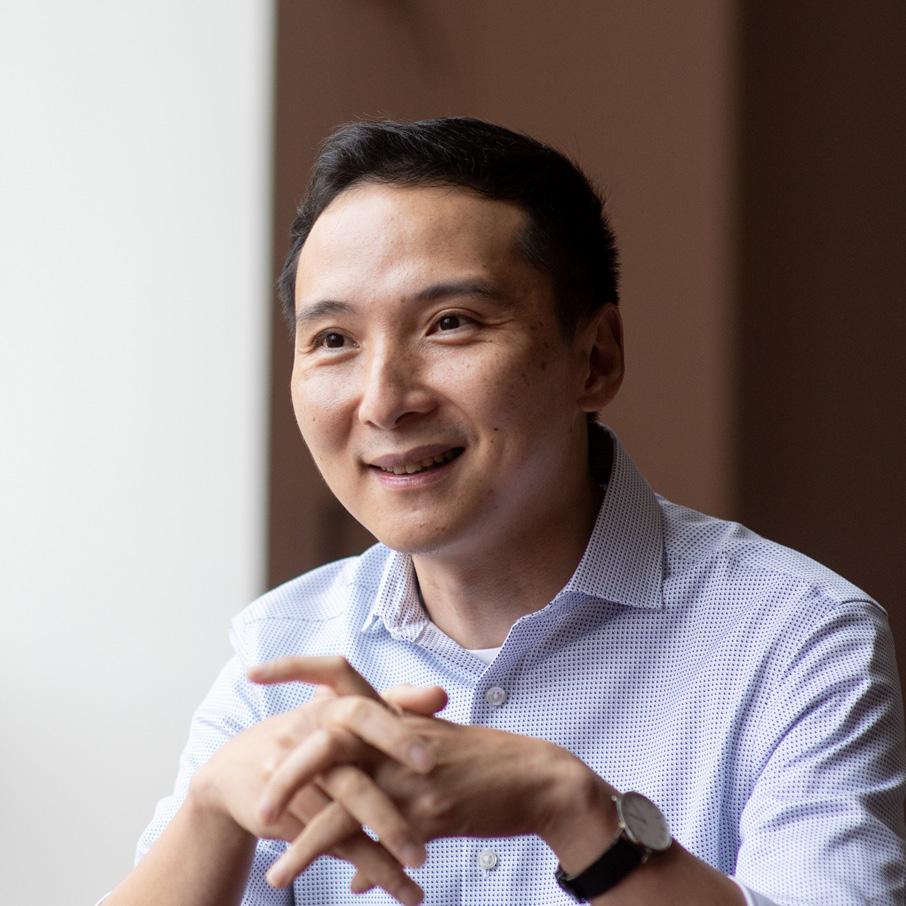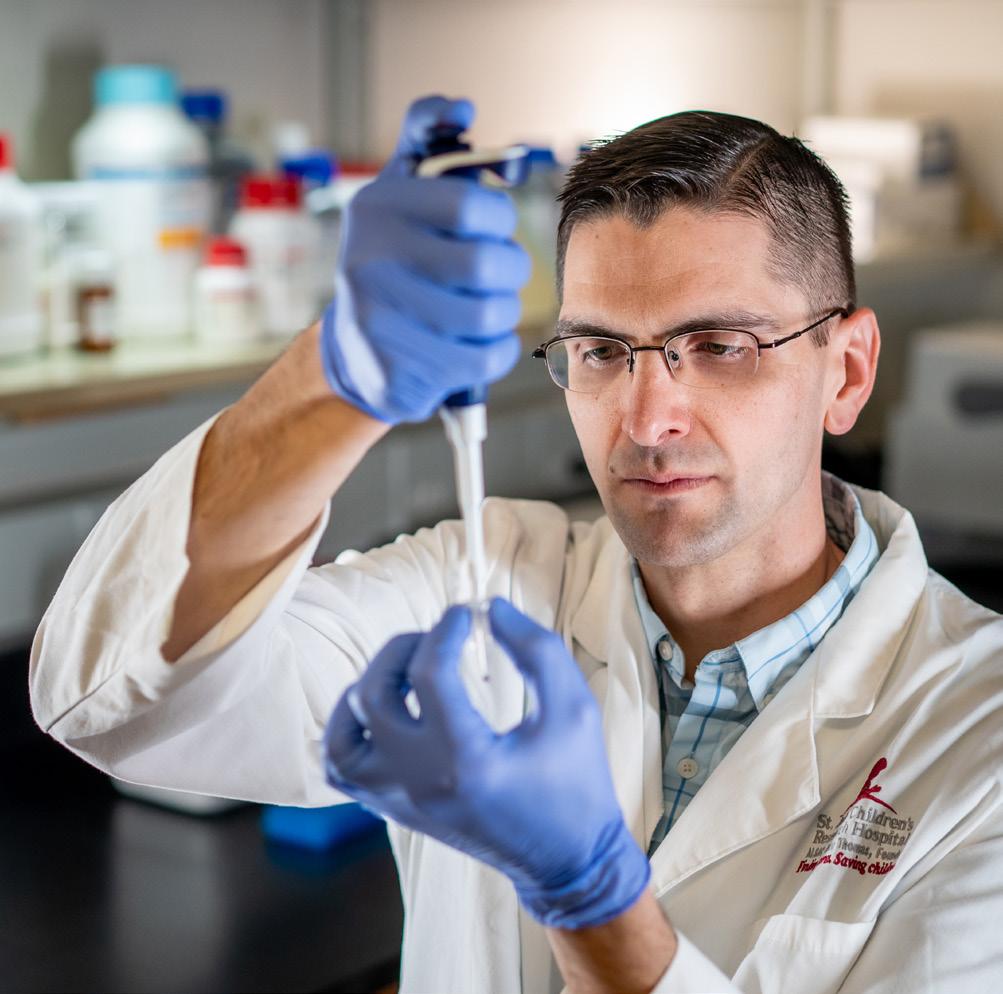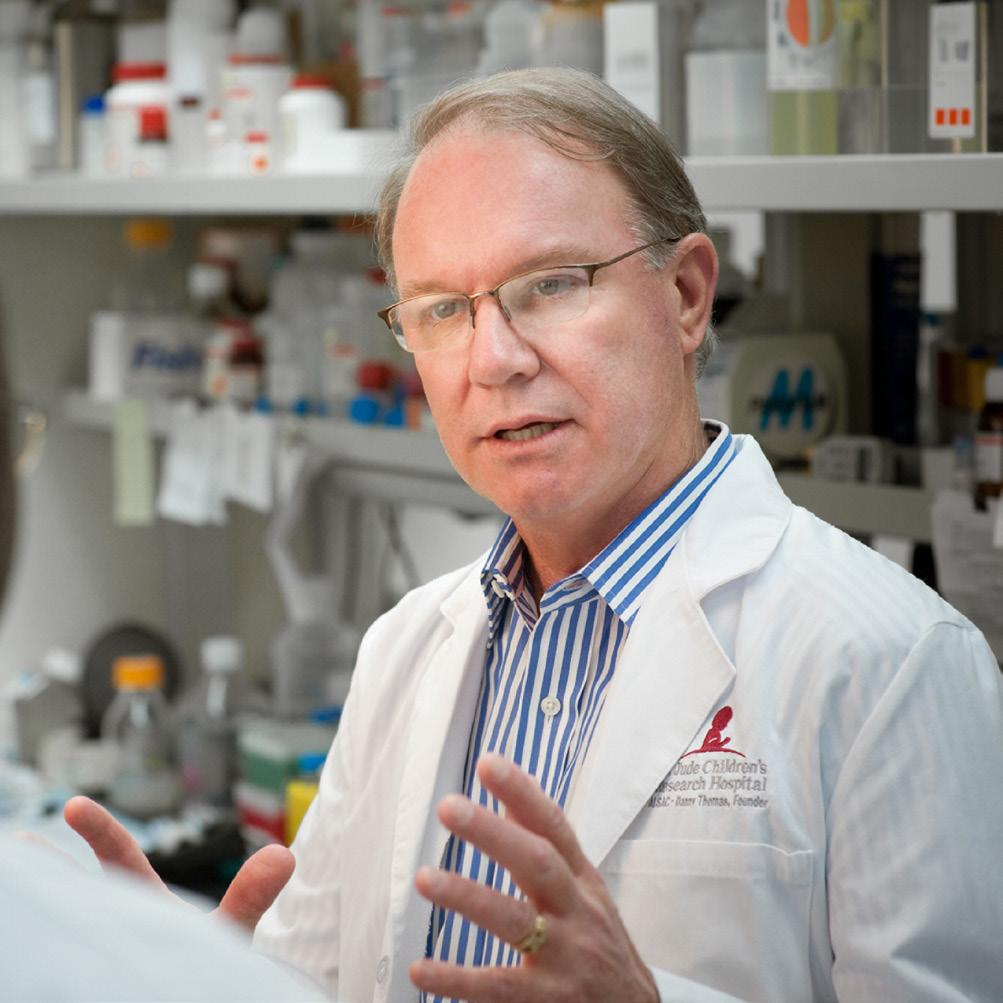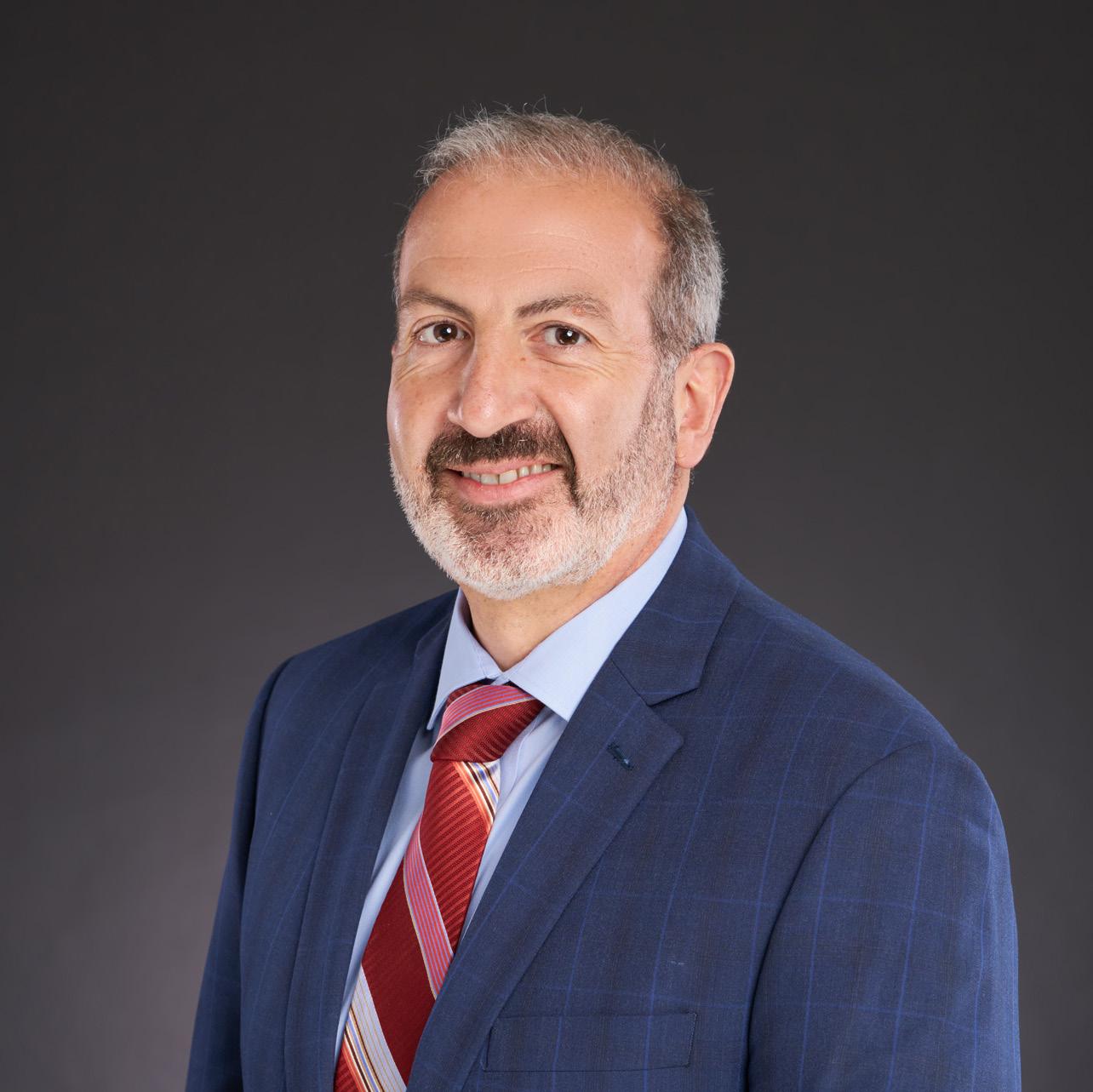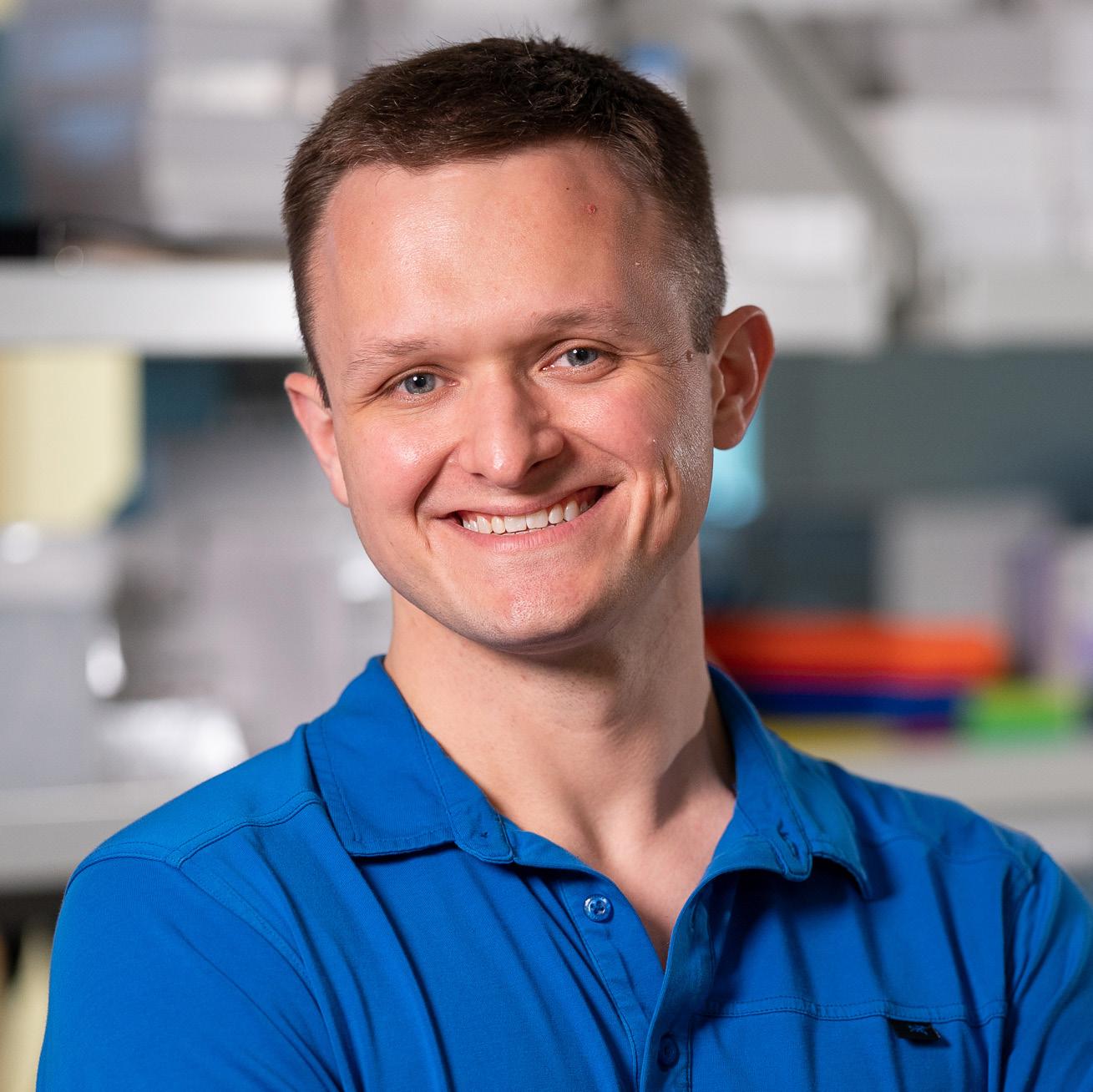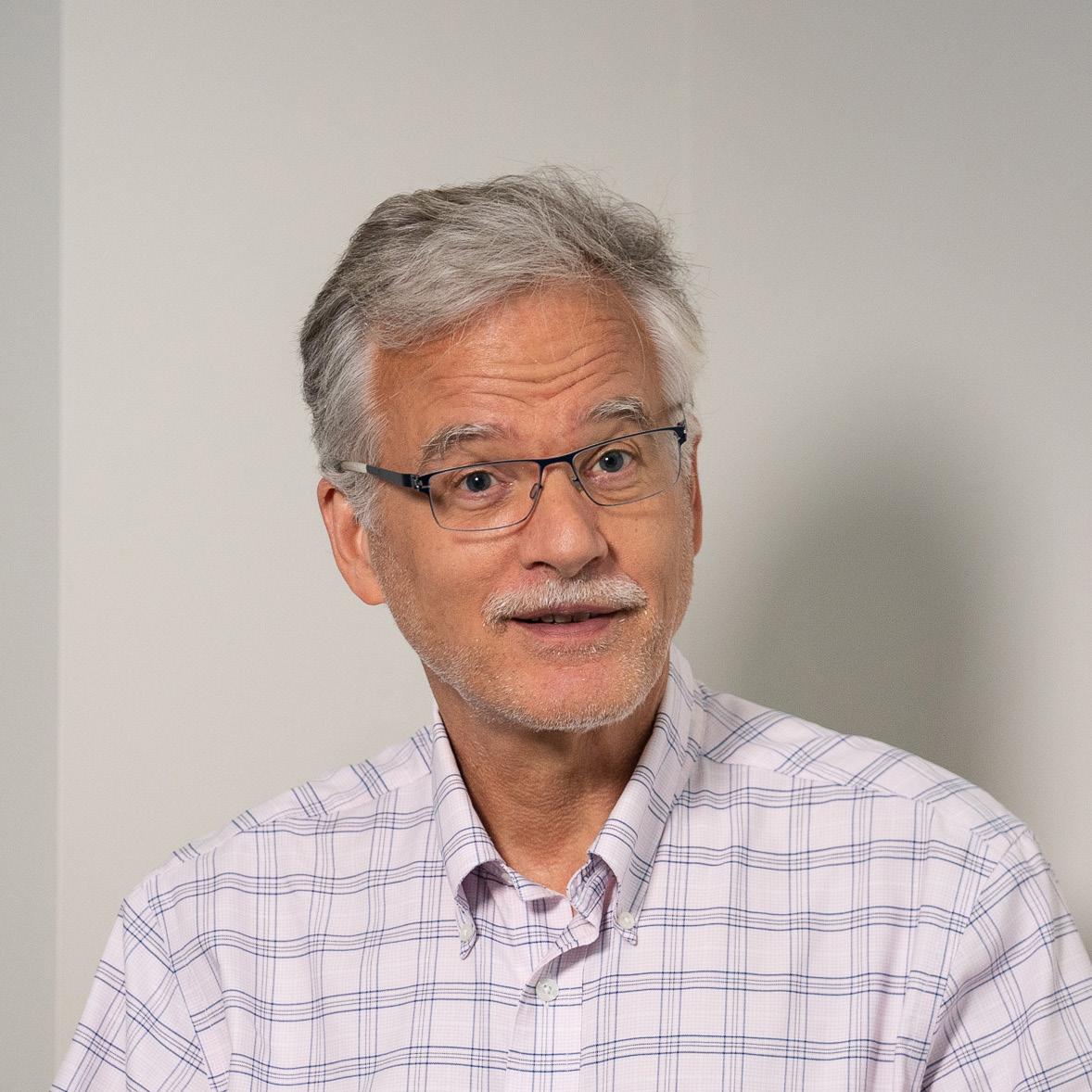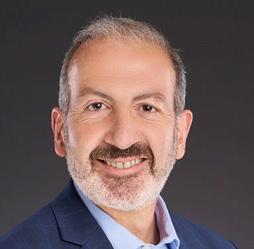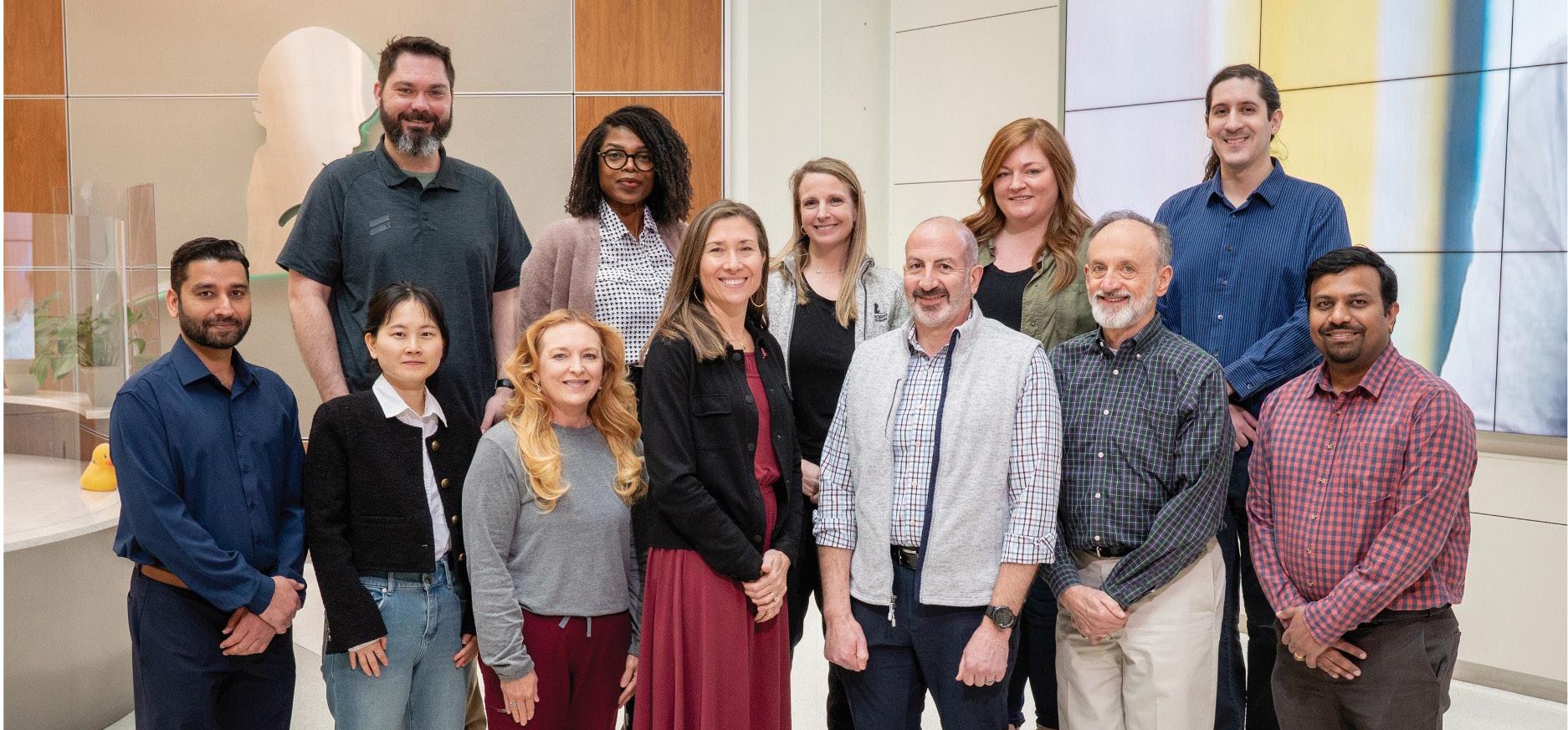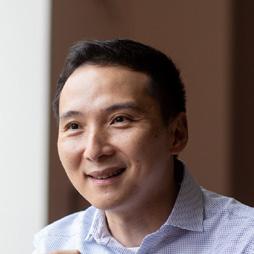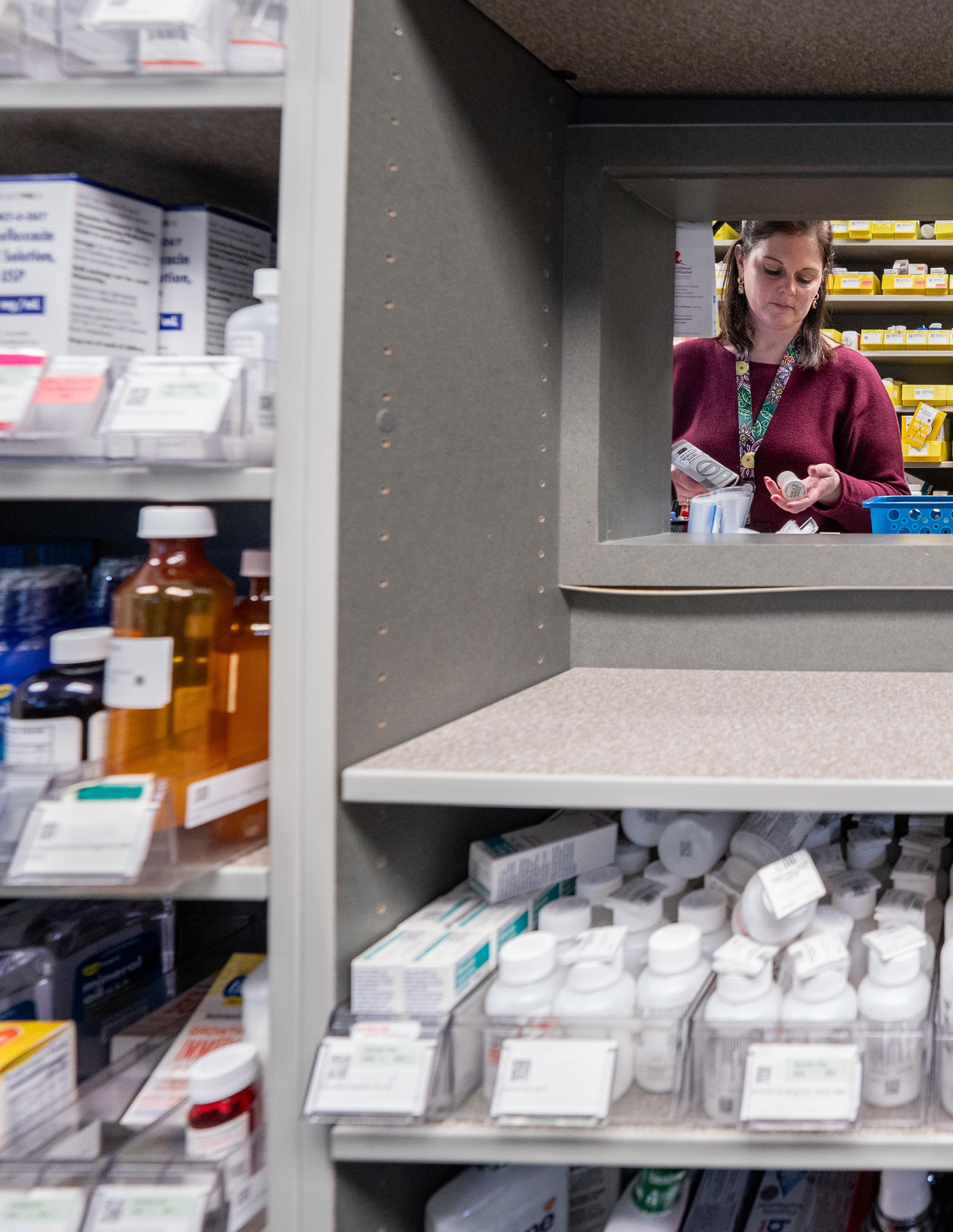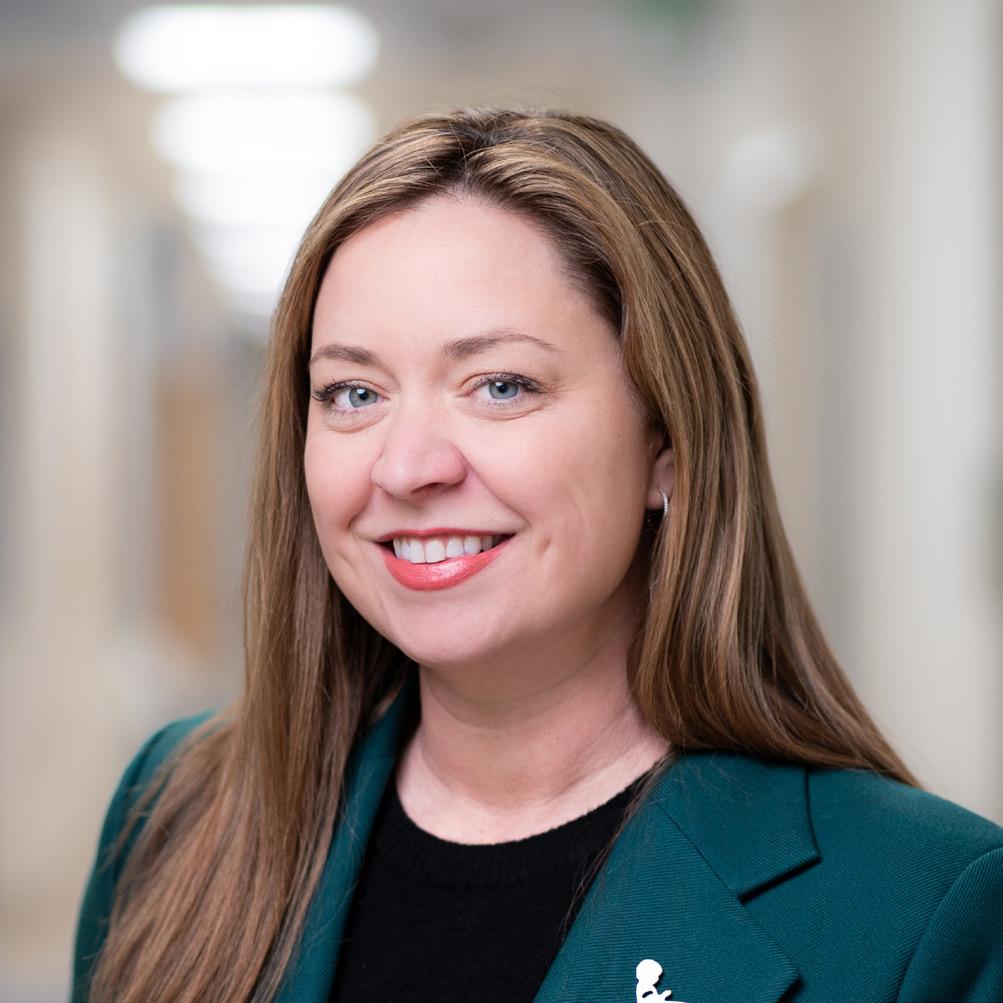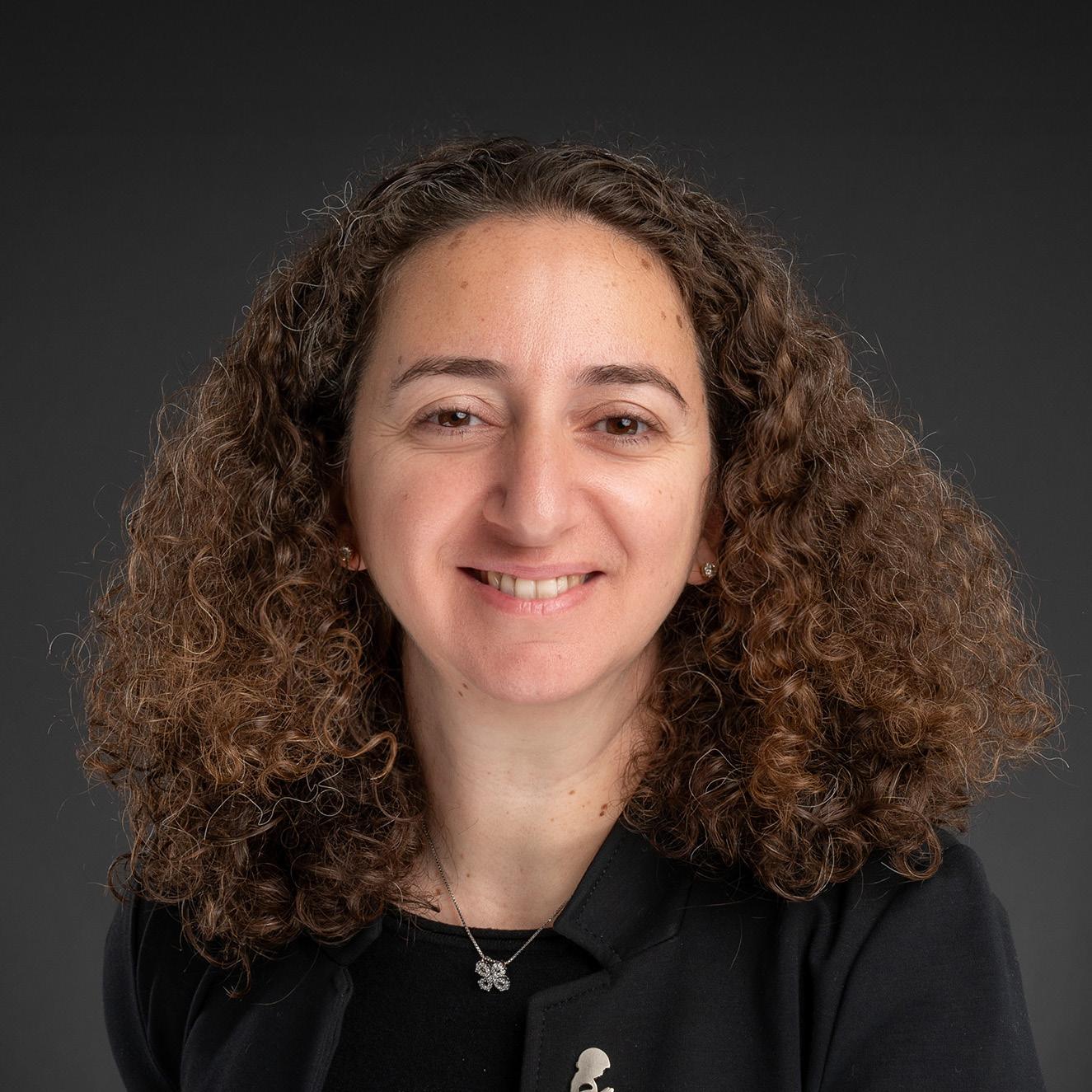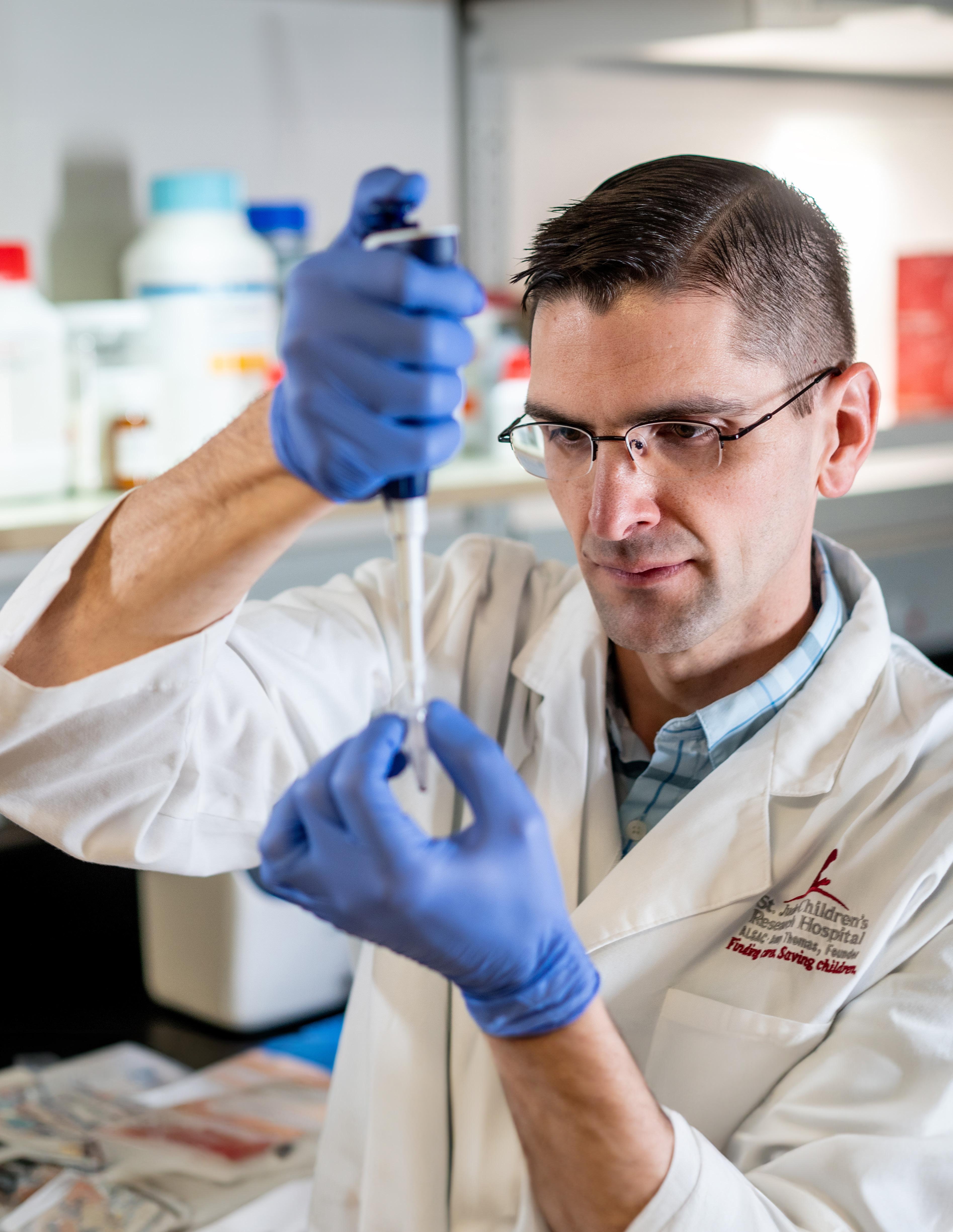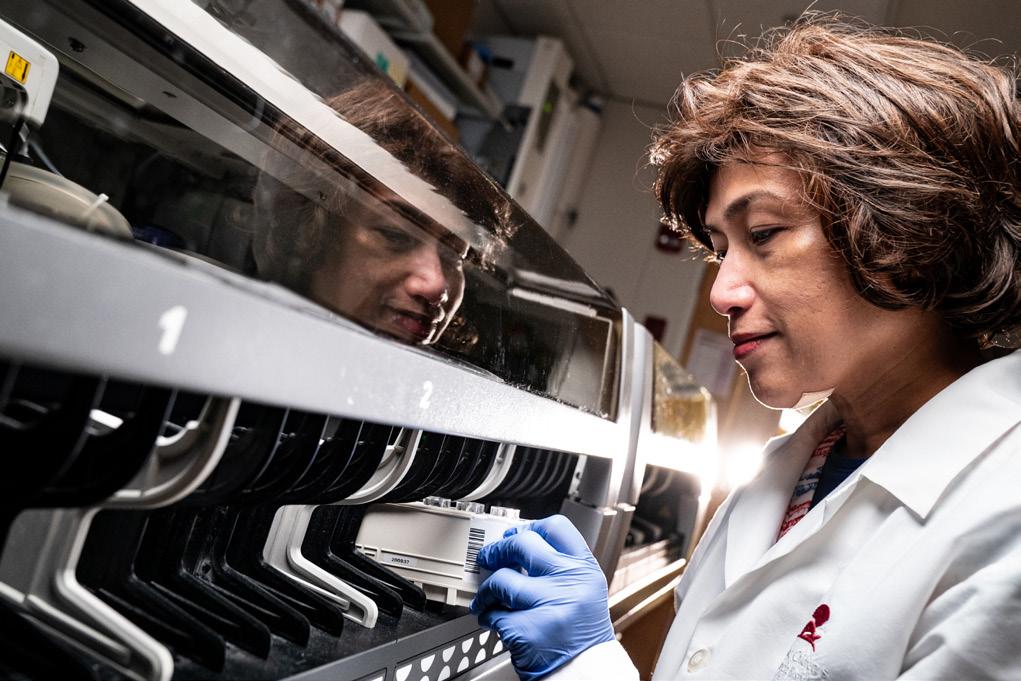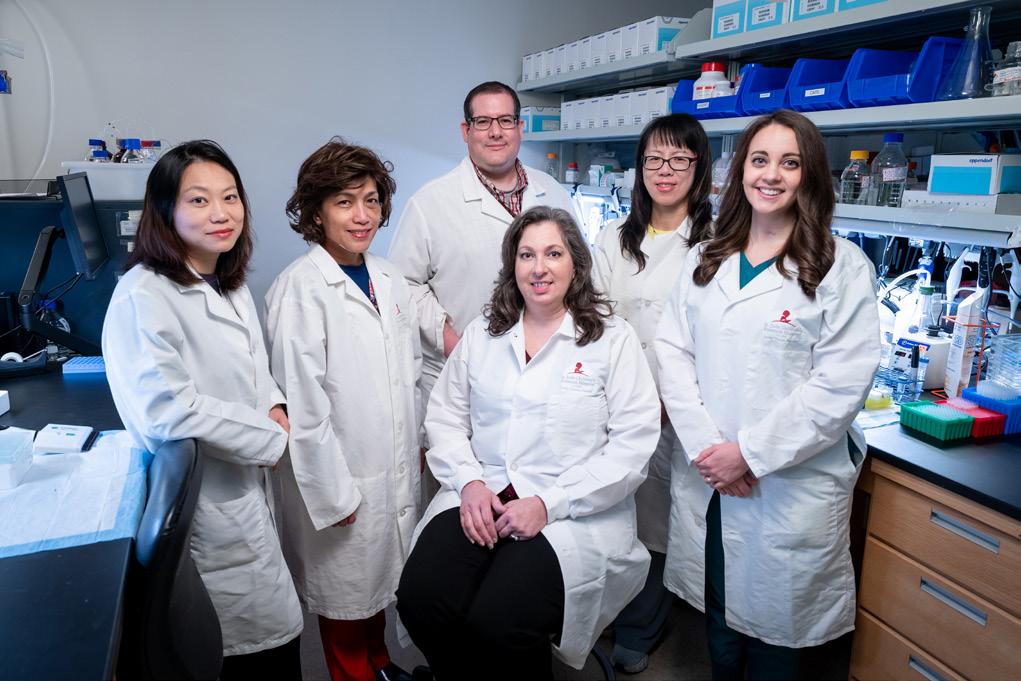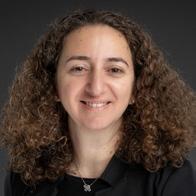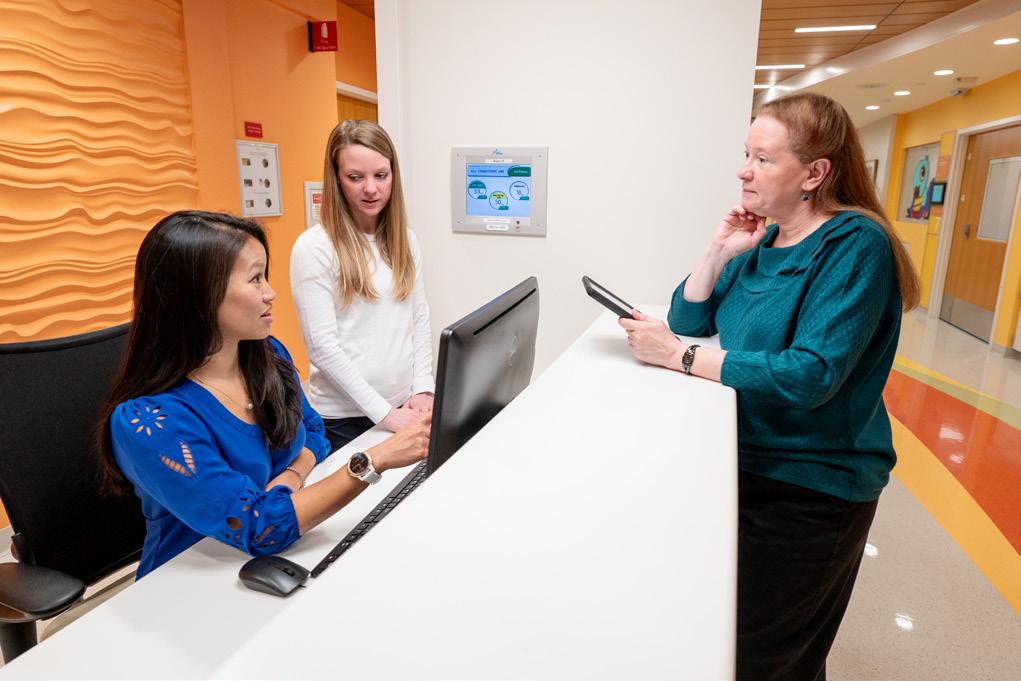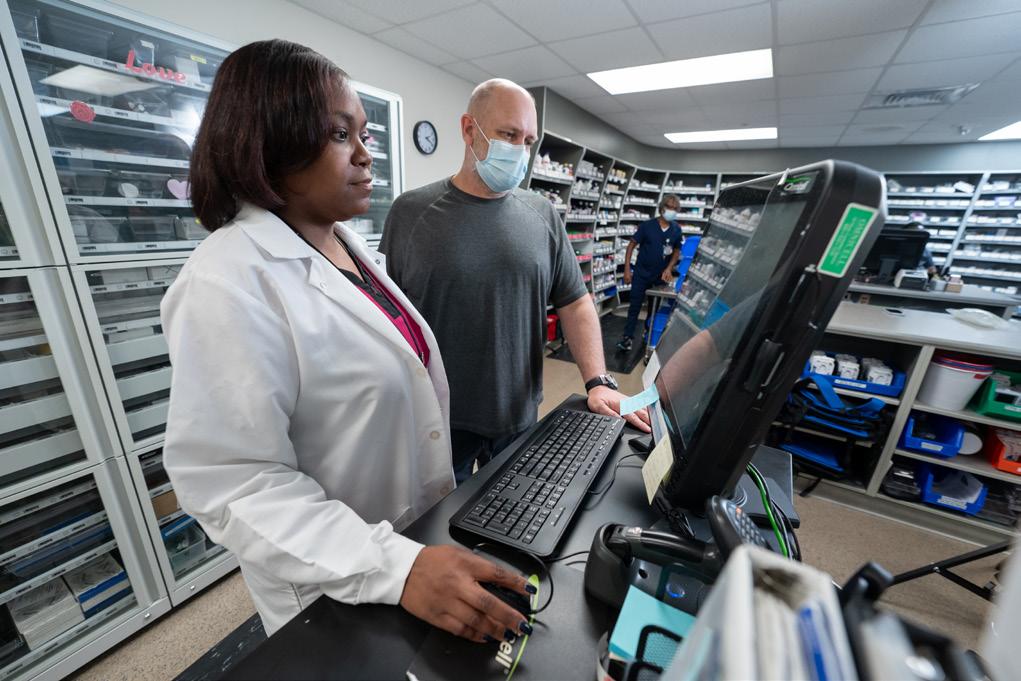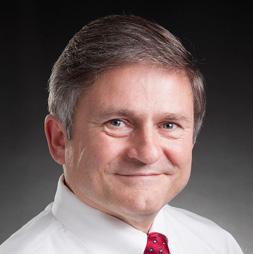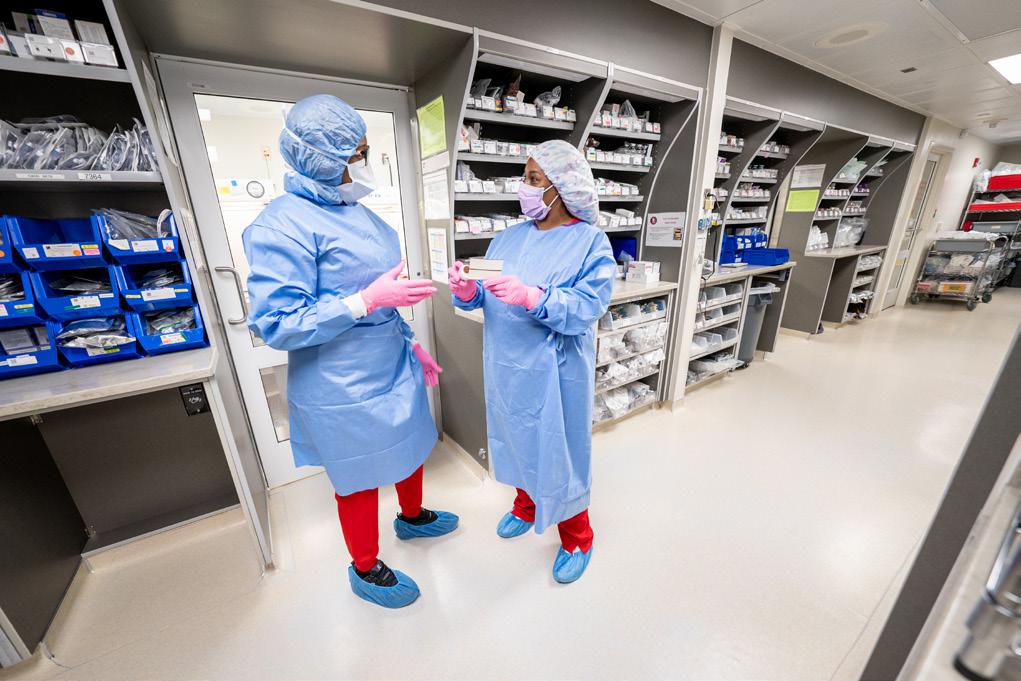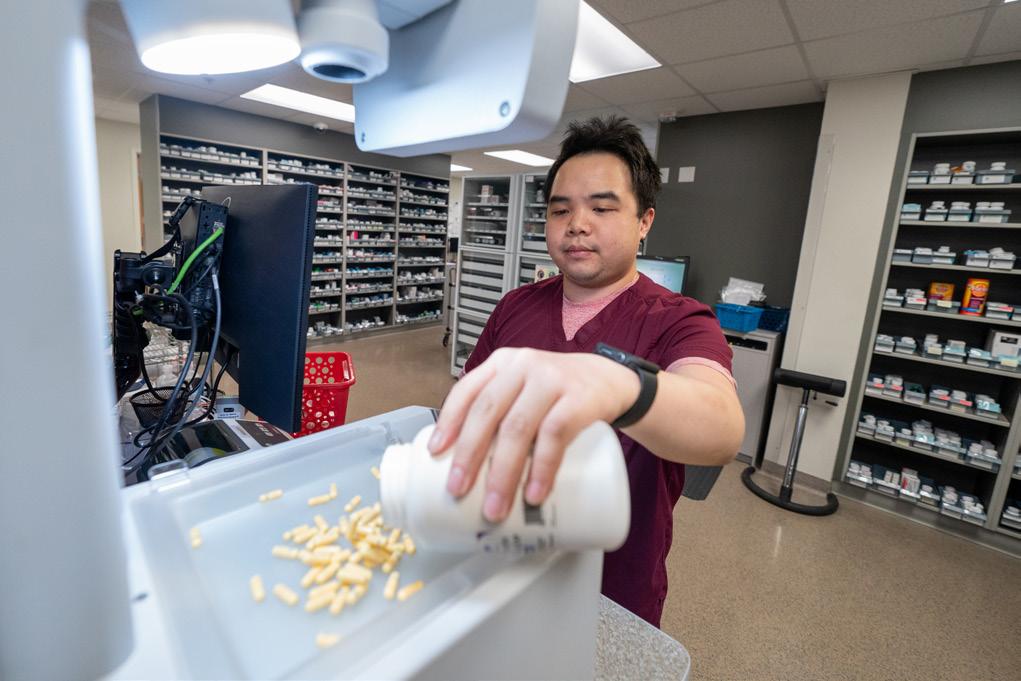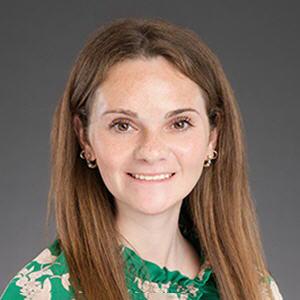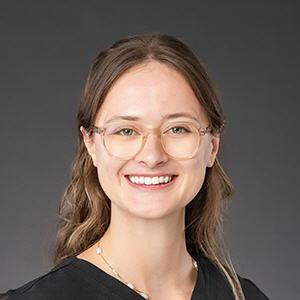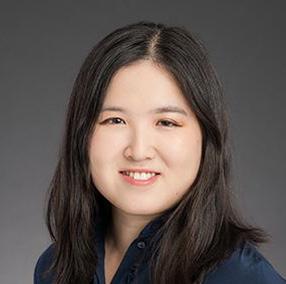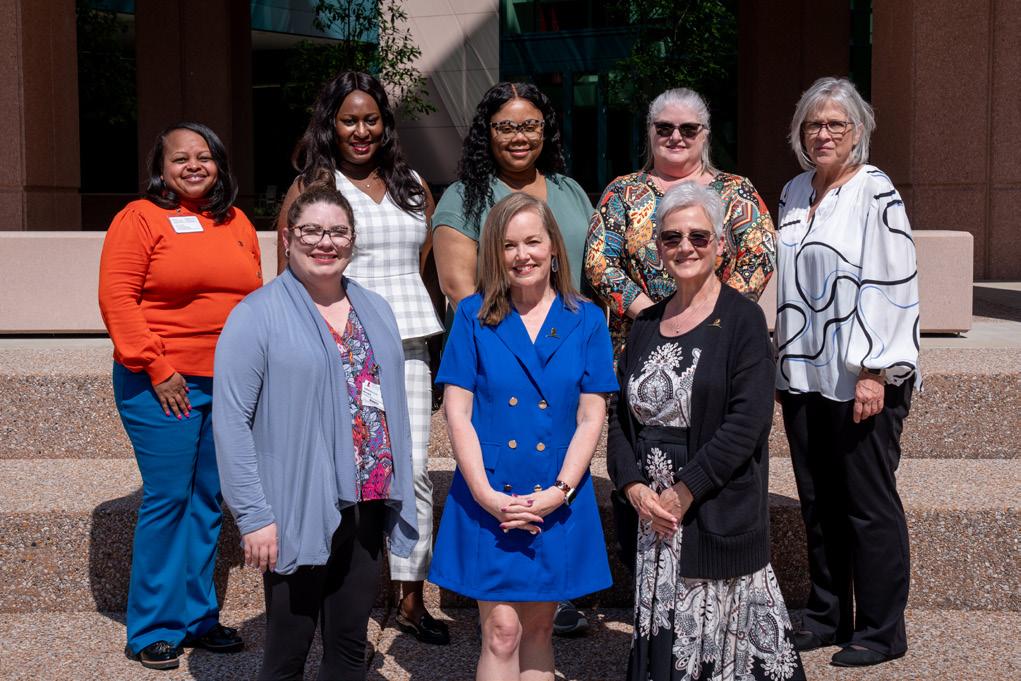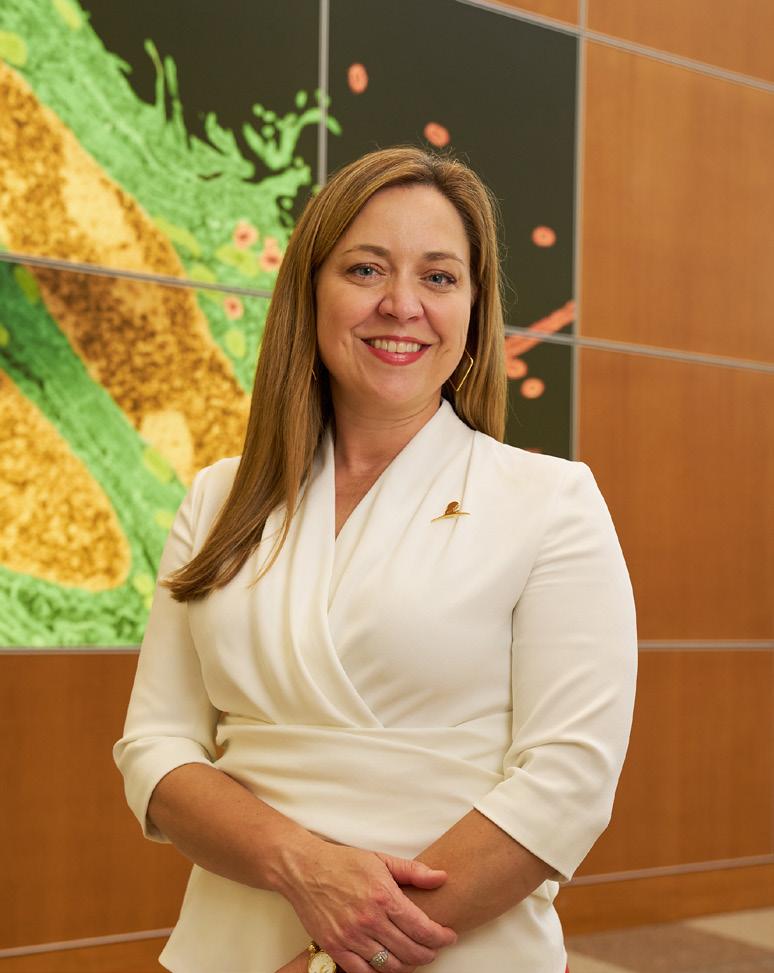Departmental Extramural Funding
NEW AWARDS FOR FY24
Kelly Caudle
NHGRI U24 – $1,380,782
September 2023 to June 2026
Clinical Implementation Resources for Pharmacogenomics (CIRP)
Peijun Ma
CIDC – $50,000
July 2023 to June 2024
Carbapenem-induced heterogeneous expression of penicillin-binding proteins and antibiotic persistence
Peijun Ma
CIDR, SJCRH - $49,000
July 2023 to June 2024
Systematic Characterization of Bacterial Isolates
Causing Antibiotic Treatment Failure in Immunocompromised Children
Ted Morton
SIDP – $75,000
July 2023 to July 2024
SIDP Pharmacotherapy Residency Award 2023-2024
Jeffrey Rybak
NIAID R03 – $186,500
July 2023 to June 2025
Development of M-Drive: A recyclable Mucor-optimized CAS9 gene-drive system cable of multi-target gene editing
Liqin Zhu
ACS – $300,000
July 2023 to June 2025
Neonatal hypoxia on hepatoblastoma metastasis
NEW AWARDS FOR FY25
Peijun Ma
NIGMS R35 - $2,312,500
January 2025 to November 2029
Deciphering the genetic regulation of stress-response mediated antibiotic persistence using bacterial single-cell transcriptomics
Milre Matherne
HOPA - $50,000
December 2024 to June 2026
Pilot study of inotuzumab ozogamicin pharmacokinetics in newly diagnosed pediatric acute lymphoblastic leukemia
Daniel Savic
NHGRI R01 - $3,264,297
April 2024 to March 2029
Deciphering the underlying structure of the glucocorticoid gene regulatory network
Liqin Zhu
ACS – $300,000
July 2024 to March 2025
Neonatal hypoxia on hepatoblastoma metastasis
OTHER ACTIVE FUNDING FY2025
Mark Leggas
NIH P30 – $277,500
March 2025 to February 2026
CCSG - Pharmacokinetics Shared Resources
P. David Rogers
NIAID R01 – $1,206,879
March 2025 to February 2026
Mapping the genomic and molecular mechanisms of antifungal resistance in the emerging fungal pathogen
Candida auris
P. David Rogers
NIAID R01 – $21,366
April 2025 to March 2026
Antifungal Antagonism as a Cause of Treatment Failure for Invasive Mycoses
Jeffrey Rybak
NIAID R03 – $186,500
July 2025 to June 2026
Development of M-Drive: A recyclable Mucor-optimized CAS9 gene-drive system cable of multi-target gene editing
Daniel Savic
NIH R01 – $68,929
August 2023 to July 2024
Admixture analysis of acute lymphoblastic leukemia in African American children: the ADMIRAL Study
John Schuetz
NIH R01 – $39,569
June 2025 to March 2026
Inhibition of Apical cAMP/cGMP transporter (MRP4) in Gut Induces Diarrhea
John Schuetz
NCI R01 – $406,501
April 2024 to March 2025
Transporters and Medulloblastoma
Clinton Stewart
Pfizer ONITT – $18,316
February 2025 to February 2026
A Randomized Phase I/II Study of Onivyde in Combination with Talazoparib or Temozolomide in Children and Young Adults With Recurrent Solid Malignancies and Ewing Sarcoma
Jun J. Yang
NCI R01 – $569,213
July 2024 to June 2025
Biomarkers of Dasatinib Response and Resistance in T-cell Acute Lymphoblastic Leukemia
Jun J. Yang
LLS TRP – $263,400
July 2024 to June 2025
LCK-targeted Therapy in T cell Acute Lymphoblastic Leukemia
Jun J. Yang
NCI R01 – $267,455
August 2024 to July 2025
Molecular Epidemiology of ALL in Children with Down Syndrome
Jun J. Yang
NCI U01 – $223,792
September 2024 to August 2025
Clonal Therapy for Pediatric T-cell Acute Lymphoblastic Leukemia
Jun J. Yang
NIGMS R35 – $516,960
February 2025 to January 2026
Pharmacogenomics of Nucleobase and Nucleoside
Analog Drugs
Jun J. Yang
NIH R01 – $35,102
March 2025 to February 2026
Predictors of Systemic Exposure to Oral 6MP During Maintenance in Adolescents and Young Adults with Acute Lymphoblastic Leukemia (wolfson)
Jun J. Yang
NCI R01 – $29,249
May 2025 to April 2026
Understanding the Increased Risk of Childhood Acute Lymphoblastic Leukemia in Latinos
Highlighted Publications
Nature Communications
The role of ATP-binding cassette subfamily B member 6 in the inner ear
Baril SA, Wilson KA, Shaik MM, Fukuda Y, Umans RA, Barbieri A, Lynch J, Gose T, Myasnikov A, Oldham ML, Wang Y, Zhu J, Fang J, Zuo J, Kalathur RC, Ford RC, Coffin A, Taylor MR, O’Mara ML, Schuetz JD. Nat Commun 15:9885-,2024. PMCID: PMC11574312 PUBMEDID: 39557842
Antimicrobial Agents and Chemotherapy
Analysis of clinical Candida parapsilosis isolates reveals copy number variation in key fluconazole resistance genes
Bergin S, Doorley LA, Rybak JM, Wolfe KH, Butler G, Cuomo CA, Rogers PD. Antimicrob Agents Chemother 68:e0161923,2024. PMCID: PMC11620501 PUBMEDID: 38712935
Nature Communications
Investigation of inherited noncoding genetic variation impacting the pharmacogenomics of childhood acute lymphoblastic leukemia treatment
Clinical Pharmacology & Therapeutics
Clinical Pharmacogenetics Implementation Consortium guideline (CPIC) for CYP2D6, ADRB1, ADRB2, ADRA2C, GRK4, and GRK5 genotypes and beta-blocker therapy
Bhattarai KR, Mobley RJ, Barnett KR, Ferguson DC, Hansen BS, Diedrich JD, Bergeron BP, Yoshimura S, Yang W, Crews KR, Manring CS, Jabbour E, Paietta E, Litzow MR, Kornblau SM, Stock W, Inaba H, Jeha S, Pui CH, Cheng C, Pruett-Miller SM, Relling MV, Yang JJ, Evans WE, Savic D. Nat Commun. 2024 May 1;15(1):3681. doi: 10.1038/s41467-024-48124-4.PMID: 38693155
Duarte JD, Thomas CD, Lee CR, Huddart R, Agundez JAG, Baye JF, Gaedigk A, Klein TE, Lanfear DE, Monte AA, Nagy M, Schwab M, Stein CM, Uppugunduri CRS, van Schaik RHN, Donnelly RS, Caudle KE, Luzum JA. Clin Pharmacol Ther 116:939-947,2024. PMCID: PMC11502236 PUBMEDID: 38951961
Blood
Germ line genetic NBN variation and predisposition to B-cell acute lymphoblastic leukemia in children
Escherich CS, Chen W, Li Y, Yang W, Nishii R, Li Z, Raetz EA, Devidas M, Wu G, Nichols KE, Inaba H, Pui CH, Jeha S, Camitta BM, Larsen E, Hunger SP, Loh ML, Yang JJ. Blood 143:22702283,2024. PMCID: PMC11443573 PUBMEDID: 38446568
Hepatology
HKDC1 promotes liver cancer stemness under hypoxia via stabilizing β-catenin
Fan L, Tian C, Yang W, Liu X, Dhungana Y, Yang W, Tan H, Glazer ES, Yu J, Peng J, Ma L, Ni M, Zhu L. Hepatology :-,2024. PMCID: PUBMEDID: 39250463
Nature Communications
The net electrostatic potential and hydration of ABCG2 affect substrate transport
Cancer Cell
Single-cell systems pharmacology identifies development-driven drug response and combination therapy in B cell acute lymphoblastic leukemia
Gose T, Aitken HM, Wang Y, Lynch J, Rampersaud E, Fukuda Y, Wills M, Baril SA, Ford RC, Shelat A, O’Mara ML, Schuetz JD. Nat Commun 15:8956-,2024. PMCID: PMC11486965
PUBMEDID: 39420170
Hospital Pediatrics
Optimizing the Use of Dose Error Reduction Software on Intravenous Infusion Pumps
The Pediatric Infectious Disease Journal
Evaluation of continuous infusion vancomycin in a pediatric hematology/oncology population
Huang X, Li Y, Zhang J, Yan L, Zhao H, Ding L, Bhatara S, Yang X, Yoshimura S, Yang W, Karol SE, Inaba H, Mullighan C, Litzow M, Zhu X, Zhang Y, Stock W, Jain N, Jabbour E, Kornblau SM, Konopleva M, Pui CH, Paietta E, Evans W, Yu J, Yang JJ. Cancer Cell 42:552-567.e6,2024. PMCID: PMC11008188 PUBMEDID: 38593781 NIHMSID: NIHMS1978911
Pediatric Blood & Cancer
Blinatumomab infusion interruptions in pediatric patients rarely lead to readmission
Hughes K, Cole M, Tims D, Wallach T, Spencer C, Page V, Robertson J, Hoffman JM. Hosp Pediatr. 2024 Jun 1;14(6):448-454. doi: 10.1542/hpeds.2023-007385.PMID: 38716570
Pharmaceutics
Population pharmacokinetic and pharmacodynamic study of palbociclib in children and young adults with recurrent, progressive, or refractory brain tumors
King MA, Cross SJ, Morton TH, Hijano DR, Greene WL, Sun Y, Tang L, Pauley JL, Bourque MS, Christensen AM. Pediatr Infect Dis J 43:520-524,2024. PMCID: PMC11098708 PUBMEDID: 38359358 NIHMSID: NIHMS1962322
Moody J, Barker PJ, Sciasci J, Pauley JL, Bragg A, McMillan C, Triplett BM, Swanson HD. Pediatr Blood Cancer 71:e31223,2024. PUBMEDID: 39054702
Panetta JC, Selvo NS, Mater DV, Stewart CF. Pharmaceutics 16:1528-,2024. PMCID: PMC11676693 PUBMEDID: 39771507
Nature Communications
A secondary mechanism of action for triazole antifungals in Aspergillus fumigatus mediated by hmg1
Journal of the National Cancer Institute
Optimizing early phase clinical trial washout periods: A report from the Therapeutic Advances in Childhood Leukemia and Lymphoma consortium
Rybak JM, Xie J, Martin-Vicente A, Guruceaga X, Thorn HI, Nywening AV, Ge W, Souza ACO, Shetty AC, McCracken C, Bruno VM, Parker JE, Kelly SL, Snell HM, Cuomo CA, Rogers PD, Fortwendel JR. Nat Commun 15:3642-,2024. PMCID: PMC11059170 PUBMEDID: 38684680
Schafer ES, Rushing T, Crews KR, Annesley C, Colace SI, Kaiser N, Pommert L, Ramsey LB, Sabnis HS, Wong K, Chang BH, Cooper TM, Shah NN, Rheingold SR, Place AE, Chi YY, Bhojwani D, Wayne AS, Bernhardt MB. J Natl Cancer Inst 116:1721-1729,2024. PMCID: PMC11542989 PUBMEDID: 38964343
The Pediatric Infectious Disease Journal
Sulfamethoxazole-trimethoprim prophylaxis in pediatric oncology patients with glucose-6phosphate dehydrogenase deficiency
Stone RM, Haidar CE, Kornegay NM, Barker PJ, Karol SE, Wolf J, Hankins JS, Relling MV, Crews KR. Pediatr Infect Dis J :-,2024. PUBMEDID: 39163536
Journal of Clinical Pharmacology
Pharmacokinetic modeling and model-based hypothesis generation for dose optimization of clonidine in neonates with neonatal opioid withdrawal syndrome
Cancer Research
The imipridone ONC213 targets a-ketoglutarate dehydrogenase to induce mitochondrial stress and suppress oxidative phosphorylation in acute myeloid leukemia
Tang F, Ng CM, Horn J, Bada HS, Leggas M. Clin Pharmacol Ther :-,2024. PUBMEDID: 39575611
Journal of Clinical Oncology
Impact of age on pharmacogenomics and treatment outcomes of B-cell acute lymphoblastic leukemia
Yongwei Su, Jenna L. Carter, Xinyu Li, Yu Fukuda, Ashley Gray, John Lynch, Holly Edwards, Jun Ma, Patrick Schreiner, Lisa Polin, Juiwanna Jushner, Sijana H. Dzinc, Steven A . Buck, Shondra M Pruett-Miller, Katie Hege Hurrish, Camenzind Robinson, Xinan Qiao, Shuang Liu, Shuangshuang Wu, Guan Wang, Jing Li, Joshua E. Allen, Varun V. Prabhu, Aaron D. Schimmer, Dhananjay Joshi, Shiva Kalhor0Monfared, Iain D. G. Watson, Richard Marcellus, Methvin B. Isaac, Rima Al-Awar, Jeffrey W. Taub, Hai Lin, John D. Schuetz, Yubin Ge. Cancer Res. 2024 PMID: 38266099
Yoshimura S, Li Z, Gocho Y, Yang W, Crews KR, Lee SHR, Roberts KG, Mullighan CG, Relling MV, Yu J, Yeoh AEJ, Loh ML, Saygin C, Litzow MR, Jeha S, Karol SE, Inaba H, Pui CH, Konopleva M, Jain N, Stock W, Paietta E, Jabbour E, Kornblau SM, Evans WE, Yang JJ. J Clin Oncol 42:3478-3490,2024. PMCID: PMC11458355 PUBMEDID: 39102629 NIHMSID: NIHMS1996246COIS-
Publications
Aguero D, Nelson SD. The potential application of large language models in pharmaceutical supply chain management. J Pediatr Pharmacol Ther 29:200-205,2024. PMCID: PMC11001215 PUBMEDID: 38596417
Aguero D, Vest MH, Tryon J. The role of the chief pharmacy officer in leading analytics strategy to support the enterprise. Am J Health Syst Pharm 81:e648-e652,2024. PMCID: PUBMEDID: 38469877
Aguero D, Allen D. Weathering the storm: Commentary on the Hurricane Helene IV fluid shortage. J Pediatr Pharmacol Ther 29:667-669,2024. PMCID: PMC11627566 PUBMEDID: 39659851
Ansari SS, Dillard ME, Zhang Y, Austria MA, Boatwright N, Shelton EL, Stewart DP, Johnson A, Wang CE, Young BM, Rankovic Z, Hansen BS, Pruett-Miller SM, Carisey AF, Schuetz JD, Robinson CG. Sonic Hedgehog activates prostaglandin signaling to stabilize primary cilium length. J Cell Biol 223:-,2024. PMCID: PMC11166601 PUBMEDID: 38856684
Bada HS, Westgate PM, Sithisarn T, Yolton K, Charnigo R, Pourcyrous M, Tang F, Gibson J, Shearer-Miller J, Giannone P, Leggas M. Clonidine as monotherapy for neonatal opioid withdrawal syndrome: A randomized trial. Pediatrics 154:e2023065610-,2024. PMCID: PMC11524040 PUBMEDID: 39403061
Baril SA, Wilson KA, Shaik MM, Fukuda Y, Umans RA, Barbieri A, Lynch J, Gose T, Myasnikov A, Oldham ML, Wang Y, Zhu J, Fang J, Zuo J, Kalathur RC, Ford RC, Coffin A, Taylor MR, O’Mara ML, Schuetz JD. The role of ATP-binding cassette subfamily B member 6 in the inner ear. Nat Commun 15:9885-,2024. PMCID: PMC11574312 PUBMEDID: 39557842
Barker P, Carias DC, Jacobs T, Carpiniello P, Takemoto C, Lieberman J, Adderson E. Promoting penicillin allergy de-labeling for children attending a hematology clinic. Pediatr Blood Cancer 71:e31034-,2024. PMCID: PUBMEDID: 38679842
Bayoumy AB, Mulder CJJ, De Boer NKH, Derijks LJJ, Yang JJ, Schmiegelow K. Comment on: A soaring price, a silent fight: Thioguanine portends new access barriers to life-saving treatments for children with cancer: The ugly duck or the chicken with the golden eggs: The crisis in thioguanine accessibility. Pediatr Blood Cancer :e31464-,2024. PMCID: PUBMEDID: 39616415
Bergin S, Doorley LA, Rybak JM, Wolfe KH, Butler G, Cuomo CA, Rogers PD. Analysis of clinical Candida parapsilosis isolates reveals copy number variation in key fluconazole resistance genes. Antimicrob Agents Chemother 68:e0161923,2024. PMCID: PMC11620501 PUBMEDID: 38712935
Bhattarai KR, Mobley RJ, Barnett KR, Ferguson DC, Hansen BS, Diedrich JD, Bergeron BP, Yoshimura S, Yang W, Crews KR, Manring CS, Jabbour E, Paietta E, Litzow MR, Kornblau SM, Stock W, Inaba H, Jeha S, Pui CH, Cheng C, PruettMiller SM, Relling MV, Yang JJ, Evans WE, Savic D. Investigation of inherited noncoding genetic variation impacting the pharmacogenomics of childhood acute lymphoblastic leukemia treatment. Nat Commun 15:3681-,2024. PMCID: PMC11063049 PUBMEDID: 38693155
Campagne O, Huang J, Lin T, Reddick WE, Selvo NS, Onar-Thomas A, Ward D, Robinson G, Gajjar A, Stewart CF. Population pharmacokinetics of methotrexate and 7-hydroxymethotrexate and delayed excretion in infants and young children with brain tumors. Eur J Pharm Sci 193:106669-,2024. PMCID: PMC10843628 PUBMEDID: 38070781
Carolus H, Sofras D, Boccarella G, Sephton-Clark P, Biriukov V, Cauldron NC, Lobo Romero C, Vergauwen R, Yazdani S, Pierson S, Jacobs S, Vandecruys P, Wijnants S, Meis JF, Gabaldón T, van den Berg P, Rybak JM, Cuomo CA, Van Dijck P. Acquired amphotericin B resistance leads to fitness trade-offs that can be mitigated by compensatory evolution in Candida auris. Nat Microbiol 9:3304-3320,2024. PMCID: PUBMEDID: 39567662
Chauhan S, Lian E, Habib I, Liu Q, Anders NM, Bugg MM, Federman NC, Reid JM, Stewart CF, Cates T, Michalek JE, Keller C. Entinostat as a combinatorial therapeutic for rhabdomyosarcoma. Sci Rep 14:18936-,2024. PMCID: PMC11327338
PUBMEDID: 39147820
Chavana AN, Taylor ZL, DeGroote N, Lindsay HB, Sauer HE, Mason EJ, Schafer ES, Miller TP, Castellino SM, Pommert L, O’Brien MM, Ramsey LB, Bernhardt MB, Brown AL. Toxicity profile of high-dose methotrexate in young children with central nervous system tumors. Pediatr Blood Cancer 71:e31213-,2024. PMCID: PUBMEDID: 39039774
de Smith AJ, Wahlster L, Jeon S, Kachuri L, Black S, Langie J, Cato LD, Nakatsuka N, Chan TF, Xia G, Mazumder S, Yang W, Gazal S, Eng C, Hu D, Burchard EG, Ziv E, Metayer C, Mancuso N, Yang JJ, Ma X, Wiemels JL, Yu F, Chiang CWK, Sankaran VG. A noncoding regulatory variant in IKZF1 increases acute lymphoblastic leukemia risk in Hispanic/Latino children. Cell Genom 4:100526-,2024. PMCID: PMC11019360 PUBMEDID: 38537633
Diedrich JD, Dong Q, Ferguson DC, Bergeron BP, Autry RJ, Qian M, Yang W, Smith C, Papizan JB, Connelly JP, Hagiwara K, Crews KR, Pruett-Miller SM, Pui CH, Yang JJ, Relling MV, Evans WE, Savic D, Correction: Profiling chromatin accessibility in pediatric acute lymphoblastic leukemia identifies subtype-specific chromatin landscapes and gene regulatory networks. Leukemia 38:1867-,2024. PMCID: PUBMEDID: 38961139
Donnelly RS, Whirl-Carrillo M, Klein TE, Caudle KE. The value of clinical pharmacogenomic guidelines that recommend standard of care over genotype-based prescribing. Clin Pharmacol Ther 116:897-898,2024. PMCID: PMC11452270 PUBMEDID: 39115927
Duarte JD, Thomas CD, Lee CR, Huddart R, Agundez JAG, Baye JF, Gaedigk A, Klein TE, Lanfear DE, Monte AA, Nagy M, Schwab M, Stein CM, Uppugunduri CRS, van Schaik RHN, Donnelly RS, Caudle KE, Luzum JA. Clinical Pharmacogenetics Implementation Consortium guideline (CPIC) for CYP2D6, ADRB1, ADRB2, ADRA2C, GRK4, and GRK5 genotypes and betablocker therapy. Clin Pharmacol Ther 116:939-947,2024. PMCID: PMC11502236 PUBMEDID: 38951961
Escherich CS, Chen W, Li Y, Yang W, Nishii R, Li Z, Raetz EA, Devidas M, Wu G, Nichols KE, Inaba H, Pui CH, Jeha S, Camitta BM, Larsen E, Hunger SP, Loh ML, Yang JJ. Germ line genetic NBN variation and predisposition to B-cell acute lymphoblastic leukemia in children. Blood 143:2270-2283,2024. PMCID: PMC11443573 PUBMEDID: 38446568
Escherich CS, Moriyama T, Li Z, Hsiao Y, Yang W, Li Y, Reyes N, Walker M, Budhraja A, Bhatara S, Diaz-Flores E, Stock W, Paietta E, Konopleva MY, Kornblau SM, Litzow MR, Inaba H, Pui CH, Opferman JT, Loh ML, Yu J, O’Brien M, Evans WE, Yang JJ. Dntt-mediated DNA damage response drives inotuzumab ozogamicin resistance in B-cell acute lymphoblastic leukemia. Blood :-,2024. PMCID: PUBMEDID: 39791601
Fan L, Tian C, Yang W, Liu X, Dhungana Y, Yang W, Tan H, Glazer ES, Yu J, Peng J, Ma L, Ni M, Zhu L. HKDC1 promotes liver cancer stemness under hypoxia via stabilizing β-catenin. Hepatology :-,2024. PMCID: PUBMEDID: 39250463
Friedman JM, Bombard Y, Carleton B, Issa AM, Knoppers B, Plon SE, Rahimzadeh V, Relling MV, Williams MS, van Karnebeek C, Vears D, Cornel MC, Global Alliance for Genomics and Health Regulatory and Ethics Workstream. Should secondary pharmacogenomic variants be actively screened and reported when diagnostic genome-wide sequencing is performed in a child? Genet Med 26:101033-,2024. PMCID: PUBMEDID: 38007624
Gaedigk A, Turner AJ, Haidar CE, Empey PE, Offer SM. Response to “DPYD genotyping panels: Impact of population diversity”. Clin Transl Sci 17:e13806-,2024. PMCID: PMC11026573 PUBMEDID: 38637962
Gaietto A, Panetta JC, Pauley JL, Relling MV, Ribeiro R, Ehrhardt MJ, Pui CH, Inaba H, Swanson HD. Ommaya reservoir use in pediatric ALL and NHL: A review at St. Jude Children’s Research Hospital. Cancer Chemother Pharmacol 93:617-625,2024. PMCID: PMC11376002 PUBMEDID: 38416167
Geller JI, Renfro LA, Grundy PE, Perlman EJ, Kalapurakal JA, Ehrlich PF, Biegel J, Huff V, Warwick AB, Paulino A, Mullen EA, Daw NC, Hoffer FA, Tochner Z, Gow K, Gratias E, Ward DA, Anderson JR, Fernandez CV, Dome JS. Rhabdoid tumor of the kidney and soft tissues: Results from National Wilms Tumor Study-5 and Children’s Oncology Group Study AREN0321. Pediatr Blood Cancer :e31490-,2024. PMCID: PUBMEDID: 39702900
Gose T, Rasouli A, Dehghani-Ghahnaviyeh S, Wen PC, Wang Y, Lynch J, Fukuda Y, Shafi T, Ford RC, Tajkhorshid E, Schuetz JD. Tumor-acquired somatic mutation affects conformation to abolish ABCG2-mediated drug resistance. Drug Resist Updat 73:101066-,2024. PMCID: PMC11137617 PUBMEDID: 38387283
Gose T, Aitken HM, Wang Y, Lynch J, Rampersaud E, Fukuda Y, Wills M, Baril SA, Ford RC, Shelat A, O’Mara ML, Schuetz JD. Publisher Correction: The net electrostatic potential and hydration of ABCG2 affect substrate transport. Nat Commun 15:8956-,2024. PMCID: PMC11486965 PUBMEDID: 39420170
Harris RD, Taylor OA, Gramatges MM, Hughes AE, Zobeck M, Pruitt S, Bernhardt MB, Chavana A, Huynh V, Ludwig K, Klesse L, Heym K, Griffin T, Erana R, Bernini JC, Choi A, Ohno Y, Richard MA, Morrison AC, Chen H, Yu B, Lupo PJ, Rabin K, Scheurer ME, Brown AL. Evaluation of methotrexate Pharmacogenomic variation to predict acute neurotoxicity in children with acute lymphoblastic leukemia. Pharmacotherapy :-,2024. PMCID:11806518 PUBMEDID:39734275
Huang X, Li Y, Zhang J, Yan L, Zhao H, Ding L, Bhatara S, Yang X, Yoshimura S, Yang W, Karol SE, Inaba H, Mullighan C, Litzow M, Zhu X, Zhang Y, Stock W, Jain N, Jabbour E, Kornblau SM, Konopleva M, Pui CH, Paietta E, Evans W, Yu J, Yang JJ. Single-cell systems pharmacology identifies development-driven drug response and combination therapy in B cell acute lymphoblastic leukemia. Cancer Cell 42:552-567.e6,2024. PMCID: PMC11008188 PUBMEDID: 38593781
Huemmer SE, Patnaik JL, Ybarra S, Congdon N, Cherwek DH, Wilson MW. Teleophthalmology through online mentorship over a 20-year period: education and capacity building. JCO Glob Oncol 10:e2400297-,2024. PMCID: PUBMEDID: 39541557
Hughes K, Cole M, Tims D, Wallach T, Spencer C, Page V, Robertson J, Hoffman JM. Optimizing the use of dose error reduction software on intravenous infusion pumps. Hosp Pediatr 14:448-454,2024. PMCID: PUBMEDID: 38716570
Hurley C, McArthur J, Gossett JM, Hall EA, Barker PJ, Hijano DR, Hines MR, Kang G, Rains J, Srinivasan S, Suliman A, Qudeimat A, Ghafoor S. Intrapulmonary administration of recombinant activated factor VII in pediatric, adolescent, and young adult oncology and hematopoietic cell transplant patients with pulmonary hemorrhage. Front Oncol 14:1375697-,2024. PMCID: PMC11055461 PUBMEDID: 38680864
Jarusiewicz JA, Yoshimura S, Actis M, Li Y, Fu X, Yang L, Narina S, Pruett-Miller SM, Zhou S, Wang X, High AA, Nishiguchi G, Yang JJ, Rankovic Z. Development of an orally bioavailable LCK PROTAC degrader as a potential therapeutic approach to T-cell acute lymphoblastic leukemia. J Med Chem 67:11868-11884,2024. PMCID: PUBMEDID: 38973320
Junco JJ, Rochette M, Alozie M, Rashid R, Terrell M, Zorman B, Sumazin P, Rowland L, Dettorre G, Powell RT, Stephan CC, Davies PJ, Martinez-Moczygemba M, Yang JJ, Rabin KR. A transgenic mouse model of Down syndrome acute lymphoblastic leukemia identifies targetable vulnerabilities. Haematologica :-,2024. PMCID: PMC11609804 PUBMEDID: 39049603
Kager L, Evans WE. Pharmacogenomics in pediatric oncology research and treatment. J Pediatr Pharmacol Ther 29:554557,2024. PMCID: PMC11472404 PUBMEDID: 39411408
Kannan S, Li Y, Baran N, Yang X, Ghotbaldini S, Tatarata QZ, Yoshimura S, Li Z, Hsiao YC, Balachander SB, Andersen CL, Cidado J, Yu J, Jain N, Yang JJ, Konopleva MY. Anti-leukemia efficacy of the dual BCL2/BCL-XL inhibitor AZD0466 in acute lymphoblastic leukemia preclinical models. Blood Adv :-,2024. PMCID: PUBMEDID: 39561378
Kimura S, Park CS, Montefiori LE, Iacobucci I, Pölönen P, Gao Q, Arnold ED, Attarbaschi A, Brown A, Buldini B, Caldwell KJ, Chang Y, Chen C, Cheng C, Cheng Z, Choi J, Conter V, Crews KR, de Groot-Kruseman HA, Deguchi T, Eguchi M, Muhle HE, Elitzur S, Escherich G, Freeman BB 3rd, Gu Z, Han K, Horibe K, Imamura T, Jeha S, Kato M, Chiew KH, Khan T, Kicinski M, Köhrer S, Kornblau SM, Kotecha RS, Li CK, Liu YC, Locatelli F, Luger SM, Paietta EM, Manabe A, Marquart HV, Masetti R, Maybury M, Mazilier P, Meijerink JPP, Mitchell S, Miyamura T, Moore AS, Oshima K, Pawinska-Wasikowska K, Pieters R, Prater MS, Pruett-Miller SM, Pui CH, Qu C, Reiterova M, Reyes N, Roberts KG, Rowe JM, Sato A, Schmiegelow K, Schrappe M, Shen S, Skoczeń S, Spinelli O, Stary J, Svaton M, Takagi M, Takita J, Tang Y, Teachey DT, Thomas PG, Tomizawa D, Trka J, Varotto E, Vincent TL, Yang JJ, Yeoh AEJ, Zhou Y, Zimmermann M, Inaba H, Mullighan CG. Biologic and clinical analysis of childhood gamma delta T-ALL identifies LMO2/STAG2 rearrangements as extremely high risk. Cancer Discov 14:18381859,2024. PMCID: PMC11452281 PUBMEDID: 38916500
King MA, Cross SJ, Morton TH, Hijano DR, Greene WL, Sun Y, Tang L, Pauley JL, Bourque MS, Christensen AM. Evaluation of continuous infusion vancomycin in a pediatric hematology/oncology population. Pediatr Infect Dis J 43:520-524,2024. PMCID: PMC11098708 PUBMEDID: 38359358
Li L, Atkinson N, Crews KR, Molinelli AR. Quantification of thiopurine metabolites in human erythrocytes by liquid chromatography-tandem mass spectrometry (LC-MS/MS). Methods Mol Biol 2737:443-452,2024. PMCID: PUBMEDID: 38036845
Li L, Atkinson N, Crews KR, Molinelli AR. Determination of thiopurine S-methyltransferase (TPMT) activity in human erythrocytes by liquid chromatography-tandem mass spectrometry (LC-MS/MS). Methods Mol Biol 2737:465-472,2024. PMCID: PUBMEDID: 38036847
Li L, Sun J, Fu Y, Changrob S, McGrath JJC, Wilson PC. A hybrid demultiplexing strategy that improves performance and robustness of cell hashing. Brief Bioinform 25:bbae254-,2024. PMCID: PMC11145454 PUBMEDID: 38828640
Li Z, Yeoh AEJ. SEQ-ing the genetic constellation of acute lymphoblastic leukemia. Haematologica 109:1640-1642,2024. PMCID: PMC11141640 PUBMEDID: 38124627
Li H, Chen Y, Ding M, Liu J, Sun H, Fang H, Brady SW, Xu Y, Glaser F, Ma X, Tang Y, Du L, Wu X, Wang S, Zhu L, Li B, Shen S, Zhang J, Zheng L, Yu J, Assaraf YG, Zhou BS. Folylpolyglutamate synthetase inactivation in relapsed ALL induces a druggable folate metabolic vulnerability. Drug Resist Updat 77:101141-,2024. PMCID: PUBMEDID: 39181011
Leung KT, Cai J, Liu Y, Chan KYY, Shao J, Yang H, Hu Q, Xue Y, Wu X, Guo X, Zhai X, Wang N, Li X, Tian X, Li Z, Xue N, Guo Y, Wang L, Zou Y, Xiao P, He Y, Jin R, Tang J, Yang JJ, Shen S, Pui CH, Li CK. Prognostic implications of CD9 in childhood acute lymphoblastic leukemia: Insights from a nationwide multicenter study in China. Leukemia 38:250-257,2024. PMCID: PMC10844073 PUBMEDID: 38001171
Maillard M, Nishii R, Yang W, Hoshitsuki K, Chepyala D, Lee SHR, Nguyen JQ, Relling MV, Crews KR, Leggas M, Singh M, Suang JLY, Yeoh AEJ, Jeha S, Inaba H, Pui CH, Karol SE, Trehan A, Bhatia P, Antillon Klussmann FG, Bhojwani D, Haidar CE, Yang JJ. Additive effects of TPMT and NUDT15 on thiopurine toxicity in children with acute lymphoblastic leukemia across multiethnic populations. J Natl Cancer Inst 116:702-710,2024. PMCID: PMC11077315 PUBMEDID: 38230823
Maillard M, Nguyen JQ, Yang W, Hoshitsuki K, Relling MV, Caudle KE, Crews KR, Jeha S, Inaba H, Pui CH, Bhatia S, Karol SE, Antillon-Klussmann FG, Haidar CE, Bhojwani D, Yang JJ. Clinical actionability of the NUDT15 *4 (p.R139H) allele and its association with Hispanic ethnicity. Clin Pharmacol Ther :-,2024. PMCID: PUBMEDID: 39688234
Martin-Vicente A, Souza ACO, Guruceaga X, Thorn HI, Xie J, Nywening AV, Ge W, Fortwendel JR. A conserved fungal morphogenetic kinase regulates pathogenic growth in response to carbon source diversity. Nat Commun 15:8945-,2024. PMCID: PMC11484838 PUBMEDID: 39414804
Miao DNR, Wilke MAP, Pham J, Ladha F, Singh M, Arsenio J, Luca E, Dabdoub A, Yang W, Yang JJ, Drögemöller BI. Leveraging large-scale datasets and single cell omics data to develop a polygenic score for cisplatin-induced ototoxicity. Hum Genomics 18:112-,2024. PMCID: PMC11463131 PUBMEDID: 39380081
Miller JS, Bada HS, Westgate PM, Sithisarn T, Leggas M. Neonatal abstinence signs during treatment: Trajectory, resurgence, and heterogeneity. Children (Basel) 11:203-,2024. PMCID: PMC10887053 PUBMEDID: 38397314
Mittal P, Myers JA, Carter RD, Radko-Juettner S, Malone HA, Rosikiewicz W, Robertson AN, Zhu Z, Narayanan IV, Hansen BS, Parrish M, Bhanu NV, Mobley RJ, Rehg JE, Xu B, Drosos Y, Pruett-Miller SM, Ljungman M, Garcia BA, Wu G, Partridge JF, Roberts CWM. PHF6 cooperates with SWI/SNF complexes to facilitate transcriptional progression. Nat Commun 15:7303,2024. PMCID: PMC11344777 PUBMEDID: 39181868
Moody J, Barker PJ, Sciasci J, Pauley JL, Bragg A, McMillan C, Triplett BM, Swanson HD. Blinatumomab infusion interruptions in pediatric patients rarely lead to readmission. Pediatr Blood Cancer 71:e31223-,2024. PMCID: PUBMEDID: 39054702
Moore JN, Campagne O, Bhojwani D, Crowe D, Stewart CF. Developing therapy for every kid With cancer - Summary of a scientific session at the 2023 ASCPT Meeting. Clin Pharmacol Ther 115:185-187,2024. PMCID: PUBMEDID: 37997700
Nair S, Selvo NS, Stolarski A, Klee B, Federico SM, Stewart CF. Quantitative determination of liposomal irinotecan and SN38 concentrations in plasma samples from children with solid tumors: Use of a cryoprotectant solution to enhance liposome stability. J Chromatogr B Analyt Technol Biomed Life Sci 1245:124273-,2024. PMCID: PMC11416028 PUBMEDID: 39146822
Panetta JC, Selvo NS, Mater DV, Stewart CF. Population pharmacokinetic and pharmacodynamic study of palbociclib in children and young adults with recurrent, progressive, or refractory brain tumors. Pharmaceutics 16:1528-,2024. PMCID: PMC11676693 PUBMEDID: 39771507
Rabin KR, Devidas M, Chen Z, Ji L, Kairalla J, Hitzler JK, Yang JJ, Carroll AJ, Heerema NA, Borowitz MJ, Wood BL, Roberts KG, Mullighan CG, Harvey RC, Chen IM, Willman CL, Reshmi SC, Gastier-Foster JM, Bhojwani D, Rheingold SR, Maloney KW, Mattano LA, Larsen EC, Schore RJ, Burke MJ, Salzer WL, Winick NJ, Carroll WL, Raetz EA, Loh ML, Hunger SP, Angiolillo AL. Outcomes in children, adolescents, and young adults with Down syndrome and ALL: A report from the Children’s Oncology Group. J Clin Oncol 42:218-227,2024. PMCID: PMC10824380 PUBMEDID: 37890117
Pereira L, Haidar CE, Haga SB, Cisler AG, Hall A, Shukla SK, Hebbring SJ, Leary EJW. Assessment of the current status of real-world pharmacogenomic testing: Informed consent, patient education, and related practices. Front Pharmacol 15:1355412-,2024. PMCID: PMC10895424 PUBMEDID: 38410134
Pölönen P, Di Giacomo D, Seffernick AE, Elsayed A, Kimura S, Benini F, Montefiori LE, Wood BL, Xu J, Chen C, Cheng Z, Newman H, Myers J, Iacobucci I, Li E, Sussman J, Hedges D, Hui Y, Diorio C, Uppuluri L, Frank D, Fan Y, Chang Y, Meshinchi S, Ries R, Shraim R, Li A, Bernt KM, Devidas M, Winter SS, Dunsmore KP, Inaba H, Carroll WL, Ramirez NC, Phillips AH, Kriwacki RW, Yang JJ, Vincent TL, Zhao Y, Ghate PS, Wang J, Reilly C, Zhou X, Sanders MA, Takita J, Kato M, Takasugi N, Chang BH, Press RD, Loh M, Rampersaud E, Raetz E, Hunger SP, Tan K, Chang TC, Wu G, Pounds SB, Mullighan CG, Teachey DT. The genomic basis of childhood T-lineage acute lymphoblastic leukaemia. Nature 632:1082-1091,2024. PMCID: PMC11611067 PUBMEDID: 39143224
Radko-Juettner S, Yue H, Myers JA, Carter RD, Robertson AN, Mittal P, Zhu Z, Hansen BS, Donovan KA, Hunkeler M, Rosikiewicz W, Wu Z, McReynolds MG, Roy Burman SS, Schmoker AM, Mageed N, Brown SA, Mobley RJ, Partridge JF, Stewart EA, Pruett-Miller SM, Nabet B, Peng J, Gray NS, Fischer ES, Roberts CWM. Targeting DCAF5 suppresses SMARCB1-mutant cancer by stabilizing SWI/SNF. Nature 628:442-449,2024. PMCID: PMC11184678 PUBMEDID: 38538798
Radko-Juettner S, Yue H, Myers JA, Carter RD, Robertson AN, Mittal P, Zhu Z, Hansen BS, Donovan KA, Hunkeler M, Rosikiewicz W, Wu Z, McReynolds MG, Roy Burman SS, Schmoker AM, Mageed N, Brown SA, Mobley RJ, Partridge JF, Stewart EA, Pruett-Miller SM, Nabet B, Peng J, Gray NS, Fischer ES, Roberts CWM. Author Correction: Targeting DCAF5 suppresses SMARCB1-mutant cancer by stabilizing SWI/SNF. Nature 629:E12-,2024. PMCID: PUBMEDID: 38684813
Ramirez-Zavala B, Kruger I, Schwanfelder S, Barker KS, Rogers PD, Morschhauser J. The zinc cluster transcription factor Znc1 regulates Rta3-dependent miltefosine resistance in Candida albicans. mSphere 9:e0027024-,2024. PMCID: PMC11288014 PUBMEDID: 38860767
Ramírez-Zavala B, Hoffmann A, Krüger I, Schwanfelder S, Barker KS, Rogers PD, Morschhäuser J. Probing gene function in Candida albicans wild-type strains by Cas9-facilitated one-step integration of two dominant selection markers: A systematic analysis of recombination events at the target locus. mSphere 9:e0038824-,2024. PMCID: PMC11288041 PUBMEDID: 38940507
Robinson KM, Eum S, Desta Z, Tyndale RF, Gaedigk A, Crist RC, Haidar CE, Myers AL, Samer CF, Somogyi AA, Zubiaur P, Iwuchukwu OF, Whirl-Carrillo M, Klein TE, Caudle KE, Donnelly RS, Kharasch ED. Clinical Pharmacogenetics Implementation Consortium guideline for CYP2B6 genotype and methadone therapy. Clin Pharmacol Ther 116:932-938,2024. PMCID: PMC11587193 PUBMEDID: 38863207
Rybak JM, Xie J, Martin-Vicente A, Guruceaga X, Thorn HI, Nywening AV, Ge W, Souza ACO, Shetty AC, McCracken C, Bruno VM, Parker JE, Kelly SL, Snell HM, Cuomo CA, Rogers PD, Fortwendel JR. A secondary mechanism of action for triazole antifungals in Aspergillus fumigatus mediated by hmg1. Nat Commun 15:3642-,2024. PMCID: PMC11059170 PUBMEDID: 38684680
Schafer ES, Rushing T, Crews KR, Annesley C, Colace SI, Kaiser N, Pommert L, Ramsey LB, Sabnis HS, Wong K, Chang BH, Cooper TM, Shah NN, Rheingold SR, Place AE, Chi YY, Bhojwani D, Wayne AS, Bernhardt MB. Optimizing early phase clinical trial washout periods: A report from the Therapeutic Advances in Childhood Leukemia and Lymphoma consortium. J Natl Cancer Inst 116:1721-1729,2024. PMCID: PMC11542989 PUBMEDID: 38964343
Shah A, Hoffman JM, Twum-Danso N, Burlison J, Barker P. Current state and future directions for improvement science: Reflections from the 2024 International Forum on Quality and Safety in Healthcare. BMJ Lead :-,2024. PMCID: PUBMEDID: 39653394
Shen CJ, Kry SF, Buchsbaum JC, Milano MT, Inskip PD, Ulin K, Francis JH, Wilson MW, Whelan KF, Mayo CS, Olch AJ, Constine LS, Terezakis SA, Vogelius IR. Retinopathy, optic neuropathy, and cataract in childhood cancer survivors treated with radiation therapy: A PENTEC comprehensive review. Int J Radiat Oncol Biol Phys 119:431-445,2024. PMCID: PUBMEDID: 37565958
Short NJ, Jabbour E, Jain N, Senapati J, Nasr L, Haddad FG, Li Z, Hsiao YC, Yang JJ, Pemmaraju N, Ohanian M, Wierda WG, Montalban-Bravo G, Borthakur G, Han L, Xiao L, Huang X, Abramova R, Zhao M, Garris R, Konopleva M, Ravandi F, Kantarjian H. A phase 1/2 study of mini-hyper-CVD plus venetoclax in patients with relapsed/refractory acute lymphoblastic leukemia. Blood Adv 8:909-915,2024. PMCID: PMC10875259 PUBMEDID: 38207208
Stone RM, Haidar CE, Kornegay NM, Barker PJ, Karol SE, Wolf J, Hankins JS, Relling MV, Crews KR. Sulfamethoxazoletrimethoprim prophylaxis in pediatric oncology patients with glucose-6-phosphate dehydrogenase deficiency. Pediatr Infect Dis J :-,2024. PMCID: PUBMEDID: 39163536
Su Y, Carter JL, Li X, Fukuda Y, Gray A, Lynch J, Edwards H, Ma J, Schreiner P, Polin L, Kushner J, Dzinic SH, Buck SA, Pruett-Miller SM, Hege-Hurrish K, Robinson C, Qiao X, Liu S, Wu S, Wang G, Li J, Allen JE, Prabhu VV, Schimmer AD, Joshi D, Kalhor-Monfared S, Watson IDG, Marcellus R, Isaac MB, Al-Awar R, Taub JW, Lin H, Schuetz JD, Ge Y. The imipridone ONC213 targets α-ketoglutarate dehydrogenase to induce mitochondrial stress and suppress oxidative phosphorylation in acute myeloid leukemia. Cancer Res 84:1084-1100,2024. PMCID: PMC11380567 PUBMEDID: 38266099
Tang F, Ng CM, Horn J, Bada HS, Leggas M. Pharmacokinetic modeling and model-based hypothesis generation for dose optimization of clonidine in neonates with neonatal opioid withdrawal syndrome. Clin Pharmacol Ther :-,2024. PMCID: PUBMEDID: 39575611
Thorn HI, Guruceaga X, Martin-Vicente A, Nywening AV, Xie J, Ge W, Fortwendel JR. MOB-mediated regulation of septation initiation network (SIN) signaling is required for echinocandin-induced hyperseptation in Aspergillus fumigatus. mSphere 9:e0069523-,2024. PMCID: PMC10964416 PUBMEDID: 38349166
Turner AJ, Haidar CE, Yang W, Boone EC, Offer SM, Empey PE, Haddad A, Tahir S, Scharer G, Broeckel U, Gaedigk A. Updated DPYD HapB3 haplotype structure and implications for pharmacogenomic testing. Clin Transl Sci 17:e13699-,2024. PMCID: PMC10777430 PUBMEDID: 38129972
Umeda M, Ma J, Westover T, Ni Y, Song G, Maciaszek JL, Rusch M, Rahbarinia D, Foy S, Huang BJ, Walsh MP, Kumar P, Liu Y, Yang W, Fan Y, Wu G, Baker SD, Ma X, Wang L, Alonzo TA, Rubnitz JE, Pounds S, Klco JM. A new genomic framework to categorize pediatric acute myeloid leukemia. Nat Genet 56:281-293,2024. PMCID: PMC10864188 PUBMEDID: 38212634
Vermeire S, Dubinsky MC, Rabizadeh S, Panetta JC, Spencer EA, Dreesen E, D’Haens G, Dervieux T, Laharie D. Forecasted infliximab concentrations during induction predict time to remission and sustained disease control of inflammatory bowel disease. Clin Res Hepatol Gastroenterol 48:102374-,2024. PMCID: PUBMEDID: 38750934
Whitlock BD, Ma Y, Conseil G, O’Brien AR, Banerjee M, Swanlund DP, Lin ZP, Wang Y, Le XC, Schuetz JD, Cole SPC, Leslie EM. Differential selectivity of human and mouse ABCC4/Abcc4 for arsenic metabolites. Drug Metab Dispos 52:14171428,2024. PMCID: PMC11585317 PUBMEDID: 39313329
Wright EK, Chaparro M, Gionchetti P, Hamilton AL, Schulberg J, Gisbert JP, Chiara Valerii M, Rizzello F, De Cruz P, Panetta JC, Everts-van der Wind A, Kamm MA, Dervieux T. Adalimumab clearance, rather than trough level, may have greatest relevance to Crohn’s disease therapeutic outcomes assessed clinically and endoscopically. J Crohns Colitis 18:212-222,2024. PMCID: PUBMEDID: 37594369
Wu X, Quan M, Hadisurya M, Hu J, Liu YK, Zhuang Y, Li L, Iliuk AB, Yang JJ, Kuang S, Tao WA. Monitoring drug metabolic pathways through extracellular vesicles in mouse plasma. PNAS Nexus 3:pgae023-,2024. PMCID: PMC10833468 PUBMEDID: 38312223
Xu J, Chen C, Sussman JH, Yoshimura S, Vincent T, Pölönen P, Hu J, Bandyopadhyay S, Elghawy O, Yu W, Tumulty J, Chen CH, Li EY, Diorio C, Shraim R, Newman H, Uppuluri L, Li A, Chen GM, Wu DW, Ding YY, Xu JA, Karanfilovski D, Lim T, Hsu M, Thadi A, Ahn KJ, Wu CY, Peng J, Sun Y, Wang A, Mehta R, Frank D, Meyer L, Loh ML, Raetz EA, Chen Z, Wood BL, Devidas M, Dunsmore KP, Winter SS, Chang TC, Wu G, Pounds SB, Zhang NR, Carroll W, Hunger SP, Bernt K, Yang JJ, Mullighan CG, Tan K, Teachey DT. A multiomic atlas identifies a treatment-resistant, bone marrow progenitor-like cell population in T cell acute lymphoblastic leukemia. Nat Cancer :-,2024. PMCID: PUBMEDID: 39587259
Yoshimura S, Li Z, Gocho Y, Yang W, Crews KR, Lee SHR, Roberts KG, Mullighan CG, Relling MV, Yu J, Yeoh AEJ, Loh ML, Saygin C, Litzow MR, Jeha S, Karol SE, Inaba H, Pui CH, Konopleva M, Jain N, Stock W, Paietta E, Jabbour E, Kornblau SM, Evans WE, Yang JJ. Impact of age on pharmacogenomics and treatment outcomes of B-cell acute lymphoblastic leukemia. J Clin Oncol 42:3478-3490,2024. PMCID: PMC11458355 PUBMEDID: 39102629
Zhang C, Chan KYY, Ng WH, Cheung JTK, Sun Q, Wang H, Chung PY, Cheng FWT, Leung AWK, Zhang XB, Lee PY, Fok SP, Lin G, Poon ENY, Feng JH, Tang YL, Luo XQ, Huang LB, Kang W, Tang PMK, Huang J, Chen C, Dong J, Mejstrikova E, Cai J, Liu Y, Shen S, Yang JJ, Yuen PMP, Li CK, Leung KT. CD9 shapes glucocorticoid sensitivity in pediatric B-cell precursor acute lymphoblastic leukemia. Haematologica 109:2833-2845,2024. PMCID: PMC11367191 PUBMEDID: 38572553
Zhang X, Wang Y, Tian X, Sun L, Jiang H, Chu J, Zhou F, Shen S, Hu S, Fang Y, Lai C, Ju X, Xu X, Zhai X, Jiang H, Yang M, Leung AWK, Xue N, Zhang Y, Yang J, Pui CH, Yu J, Gao J, Hu Q, Zhu X. Delineation of features, responses, outcomes, and prognostic factors in pediatric PDGFRB-positive acute lymphoblastic leukemia patients: A retrospective multicenter study. Cancer 130:3902-3912,2024. PMCID: PUBMEDID: 39136180
Zhang W, Cai J, Wang X, Ma Y, Zhu X, Yu J, Xiao P, Gao J, Fang Y, Liang C, Li X, Zhou F, Zhai X, Xu X, Tian X, Liu A, Wang N, Zhu J, Wang L, Cheng FWT, Yang L, Zhang G, Cheng C, Yang JJ, Shen S, Li CK, Li B, Jiang H, Pui CH. Prognostic and therapeutic implications of measurable residual disease levels during remission induction of childhood ALL. Blood :-,2024. PMCID: PUBMEDID: 39786460
Zhou Y, Phelps GA, Mangrum MM, McLeish J, Phillips EK, Lou J, Ancajas CF, Rybak JM, Oelkers PM, Lee RE, Best MD, Reynolds TB. The small molecule CBR-5884 inhibits the Candida albicans phosphatidylserine synthase. MBio 15:e0063324,2024. PMCID: PMC11077991 PUBMEDID: 38587428
Zhu L. Reply: HKDC1 promotes liver cancer stemness under hypoxia via stabilizing β-catenin. Hepatology :-,2024. PMCID: PUBMEDID: 39523584
Howze, T. J., Nason, T. N., Carr, S. D., Pate, S. M., Roe, A. L., & Patel, N. D. (2025). Improving medication adherence and viral load suppression in pediatric, adolescent, and young adult patients living with HIV using a specialty pharmacy. HIV Research & Clinical Practice, 26(1). https://doi.org/10.1080/25787489.2025.2513847
Howze, T. J., Nason, T. N., Carr, S. D., Pate, S. M., Roe, A. L., & Patel, N. D. (2025). Improving medication adherence and viral load suppression in pediatric, adolescent, and young adult patients living with HIV using a specialty pharmacy. HIV Research & Clinical Practice, 26(1). https://doi.org/10.1080/25787489.2025.2513847
Howze, T. J., Nason, T. N., Carr, S. D., Pate, S. M., Roe, A. L., & Patel, N. D. (2025). Improving medication adherence and viral load suppression in pediatric, adolescent, and young adult patients living with HIV using a specialty pharmacy. HIV Research & Clinical Practice, 26(1). https://doi.org/10.1080/25787489.2025.2513847
